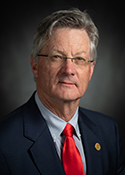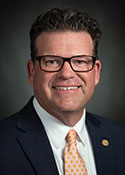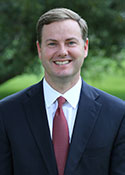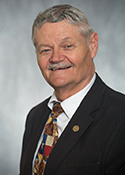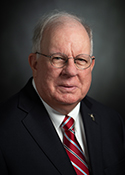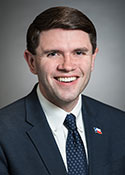POLYGON ((-96.331121 31.252465, -96.330591 31.253938, -96.33065 31.254685, -96.329025 31.256633, -96.32934 31.257435, -96.328239 31.257892, -96.327382 31.259328, -96.326288 31.259604, -96.326103 31.260346, -96.325181 31.26093, -96.324908 31.261964, -96.323839 31.260474, -96.325457 31.259705, -96.324229 31.258721, -96.323845 31.257946, -96.322098 31.256875, -96.321625 31.257518, -96.320473 31.258155, -96.320454 31.259914, -96.319904 31.260579, -96.319412 31.260266, -96.318791 31.260403, -96.317812 31.26253, -96.316756 31.263338, -96.316833 31.263932, -96.317665 31.26419, -96.317268 31.264894, -96.314728 31.265817, -96.315784 31.266762, -96.315426 31.26724, -96.314421 31.26751, -96.314281 31.268059, -96.314632 31.268411, -96.314146 31.269917, -96.314844 31.270587, -96.314121 31.270653, -96.313833 31.270994, -96.314952 31.271785, -96.31549 31.271456, -96.315919 31.272148, -96.316642 31.272527, -96.317032 31.272335, -96.317787 31.272868, -96.317256 31.273132, -96.317448 31.274918, -96.316847 31.275671, -96.316872 31.27666, -96.316226 31.277292, -96.319624 31.280551, -96.32187 31.282151, -96.322107 31.282854, -96.322452 31.282805, -96.322984 31.281958, -96.323457 31.282304, -96.324199 31.282112, -96.324999 31.282453, -96.326043 31.283563, -96.326286 31.284931, -96.326657 31.285129, -96.327604 31.284816, -96.327572 31.285953, -96.327988 31.28647, -96.327425 31.28747, -96.327528 31.288075, -96.326984 31.289718, -96.328136 31.291163, -96.326978 31.291686, -96.326421 31.293087, -96.327042 31.293642, -96.32719 31.295742, -96.328316 31.295643, -96.328515 31.296659, -96.328028 31.297566, -96.328592 31.298638, -96.327088 31.299418, -96.326224 31.300677, -96.32536 31.300825, -96.325142 31.300518, -96.324464 31.300573, -96.324124 31.299765, -96.3231 31.299199, -96.321654 31.299281, -96.321417 31.298825, -96.321634 31.298204, -96.321013 31.29777, -96.320533 31.298468, -96.320828 31.299737, -96.320322 31.300034, -96.319753 31.299661, -96.319189 31.301112, -96.318505 31.301722, -96.317647 31.301447, -96.317301 31.301623, -96.319074 31.304057, -96.320988 31.304486, -96.321244 31.305404, -96.32271 31.306234, -96.322793 31.306953, -96.323485 31.30747, -96.32337 31.308251, -96.324989 31.309141, -96.325463 31.310465, -96.325988 31.310713, -96.326017 31.311968, -96.325387 31.313152, -96.324842 31.313195, -96.325004 31.312649, -96.324776 31.312298, -96.323031 31.312894, -96.322796 31.313804, -96.323111 31.314506, -96.322476 31.31454, -96.322432 31.31525, -96.32158 31.315336, -96.320742 31.316186, -96.320957 31.316647, -96.322153 31.316878, -96.322139 31.31815, -96.321518 31.31891, -96.318983 31.320276, -96.317187 31.323278, -96.317205 31.3255, -96.319741 31.325563, -96.320099 31.325935, -96.320062 31.326843, -96.318384 31.327367, -96.318155 31.32819, -96.31883 31.329872, -96.319533 31.32985, -96.320268 31.330935, -96.319953 31.332121, -96.318852 31.332714, -96.318548 31.33344, -96.319379 31.336131, -96.318905 31.336985, -96.317018 31.337567, -96.31585 31.338532, -96.316219 31.339704, -96.315003 31.340943, -96.315298 31.341783, -96.314685 31.342443, -96.314946 31.342856, -96.316165 31.342828, -96.316159 31.343934, -96.316897 31.344349, -96.315906 31.345605, -96.316227 31.346914, -96.316863 31.347191, -96.318441 31.346737, -96.318256 31.347875, -96.318705 31.348215, -96.319874 31.350489, -96.319682 31.351303, -96.32002 31.352863, -96.319867 31.353436, -96.318958 31.353319, -96.3188 31.354804, -96.319508 31.355758, -96.319147 31.356556, -96.319122 31.357775, -96.318141 31.360654, -96.31713 31.362007, -96.317466 31.362387, -96.317856 31.364746, -96.318269 31.36478, -96.318627 31.364386, -96.319145 31.365785, -96.319115 31.367884, -96.320666 31.368826, -96.321147 31.370112, -96.322548 31.371215, -96.322853 31.374067, -96.275659 31.395338, -96.170684 31.443692, -96.165463 31.446432, -96.165055 31.446262, -96.122963 31.465401, -96.00012 31.521953, -95.875237 31.578774, -95.864156 31.583507, -95.7873 31.618385, -95.786159 31.616793, -95.785458 31.612521, -95.784721 31.610666, -95.782577 31.607467, -95.779978 31.604337, -95.777586 31.602257, -95.77198 31.598621, -95.768443 31.597409, -95.766665 31.597817, -95.764483 31.599445, -95.763477 31.59981, -95.76139 31.59963, -95.760961 31.60008, -95.761316 31.601906, -95.760752 31.604012, -95.75756 31.604826, -95.753267 31.606938, -95.752557 31.61005, -95.753439 31.612506, -95.753344 31.61375, -95.752334 31.615146, -95.748669 31.617709, -95.749031 31.619949, -95.748864 31.620806, -95.750412 31.622922, -95.751467 31.626107, -95.753174 31.629223, -95.753327 31.630432, -95.752783 31.633727, -95.752875 31.635298, -95.754181 31.639417, -95.755663 31.641631, -95.757166 31.643164, -95.756768 31.64561, -95.754105 31.648583, -95.752824 31.649276, -95.749039 31.649894, -95.74468 31.651833, -95.74173 31.652108, -95.739373 31.653827, -95.73801 31.654058, -95.736026 31.653956, -95.735253 31.653426, -95.732759 31.648823, -95.730706 31.646713, -95.727741 31.644439, -95.723648 31.637972, -95.718468 31.632402, -95.71746 31.630053, -95.717355 31.627206, -95.713426 31.621664, -95.710112 31.615587, -95.710035 31.614694, -95.711953 31.610421, -95.712304 31.608299, -95.712312 31.607154, -95.711258 31.604971, -95.711185 31.603903, -95.71169 31.603162, -95.714003 31.601775, -95.716288 31.598392, -95.716677 31.596466, -95.71587 31.594067, -95.7166 31.593612, -95.719024 31.593417, -95.719874 31.592849, -95.720257 31.591978, -95.720689 31.588384, -95.721855 31.586281, -95.725154 31.58476, -95.729038 31.584237, -95.729486 31.583523, -95.72894 31.582605, -95.726806 31.581523, -95.724694 31.579773, -95.722721 31.578887, -95.721322 31.577847, -95.719906 31.575116, -95.718233 31.573215, -95.717991 31.571934, -95.718422 31.571277, -95.719506 31.570748, -95.721744 31.570398, -95.722248 31.569714, -95.721306 31.56894, -95.718425 31.568637, -95.717518 31.568343, -95.717038 31.567765, -95.716862 31.566776, -95.717361 31.561996, -95.717291 31.559287, -95.715464 31.555, -95.715705 31.553982, -95.718512 31.553659, -95.722353 31.555538, -95.72392 31.555776, -95.72595 31.555037, -95.727336 31.553784, -95.728807 31.5518, -95.730377 31.551243, -95.73516 31.551277, -95.7384 31.552853, -95.742575 31.554158, -95.746149 31.553529, -95.748251 31.552545, -95.751072 31.551964, -95.752466 31.550739, -95.754132 31.546048, -95.753418 31.544282, -95.752173 31.543626, -95.75106 31.542285, -95.750875 31.540734, -95.75271 31.538732, -95.754665 31.537986, -95.756731 31.536571, -95.75863 31.534098, -95.758711 31.533217, -95.758347 31.53261, -95.756495 31.531052, -95.751732 31.529398, -95.747892 31.528515, -95.747114 31.527607, -95.74691 31.52419, -95.745957 31.523688, -95.744123 31.523553, -95.741139 31.522474, -95.739421 31.520233, -95.737918 31.519447, -95.737034 31.518534, -95.736116 31.516133, -95.73581 31.514144, -95.733829 31.509161, -95.733877 31.508376, -95.735441 31.506646, -95.739279 31.504056, -95.647171 31.527014, -95.651764 31.541791, -95.61221 31.547668, -95.564093 31.554195, -95.523569 31.560098, -95.500228 31.563514, -95.493171 31.564905, -95.375224 31.579561, -95.365632 31.581188, -95.273203 31.592886, -95.273998 31.591442, -95.273048 31.590471, -95.272155 31.590347, -95.270105 31.591621, -95.268962 31.588397, -95.269178 31.58718, -95.268149 31.586777, -95.268259 31.586006, -95.267278 31.585359, -95.266863 31.584116, -95.264816 31.583872, -95.263837 31.581675, -95.261964 31.580995, -95.260737 31.579431, -95.260257 31.577104, -95.257 31.57646, -95.256162 31.575975, -95.255217 31.574814, -95.25458 31.574804, -95.252702 31.57617, -95.251804 31.576386, -95.251204 31.576265, -95.250353 31.575389, -95.24662 31.575375, -95.24101 31.57466, -95.2407 31.574919, -95.240799 31.576435, -95.239814 31.576705, -95.236087 31.575325, -95.233142 31.574834, -95.231415 31.573672, -95.230187 31.573495, -95.228169 31.574722, -95.228333 31.575406, -95.230835 31.575905, -95.231608 31.576433, -95.231601 31.577048, -95.230088 31.577327, -95.228398 31.576363, -95.227657 31.576267, -95.226544 31.577407, -95.225975 31.577417, -95.225113 31.576691, -95.223676 31.576608, -95.222413 31.575853, -95.221333 31.575727, -95.22055 31.574295, -95.219458 31.574513, -95.218356 31.57343, -95.216158 31.573305, -95.213949 31.572729, -95.212811 31.572767, -95.211409 31.573279, -95.21102 31.572924, -95.211274 31.572035, -95.210975 31.571877, -95.210091 31.572019, -95.209263 31.573117, -95.208776 31.573054, -95.208298 31.572466, -95.208283 31.571852, -95.209524 31.570782, -95.208518 31.570185, -95.207701 31.570434, -95.204546 31.572693, -95.202716 31.573393, -95.20193 31.57319, -95.200659 31.572073, -95.19786 31.571507, -95.197384 31.571931, -95.19724 31.572963, -95.198793 31.573497, -95.198258 31.574102, -95.194684 31.574688, -95.193374 31.573283, -95.192573 31.573297, -95.192998 31.575241, -95.192722 31.576059, -95.191691 31.577106, -95.189332 31.578231, -95.185908 31.57894, -95.18532 31.578155, -95.184877 31.578181, -95.180554 31.580604, -95.179431 31.580406, -95.176359 31.584826, -95.172271 31.585009, -95.170558 31.58312, -95.169188 31.58374, -95.168509 31.583671, -95.168996 31.582342, -95.171033 31.581542, -95.170727 31.580919, -95.16806 31.580217, -95.16705 31.579571, -95.164797 31.579089, -95.163838 31.578164, -95.162217 31.577676, -95.161927 31.576134, -95.162152 31.575494, -95.161634 31.574903, -95.161555 31.573216, -95.16025 31.573046, -95.158242 31.571564, -95.157691 31.571653, -95.157304 31.572449, -95.15662 31.572413, -95.156315 31.57196, -95.157001 31.571333, -95.15699 31.570859, -95.155006 31.571177, -95.152936 31.570199, -95.149737 31.569568, -95.149198 31.568807, -95.150564 31.566996, -95.150992 31.565874, -95.147426 31.563174, -95.147093 31.563166, -95.146454 31.563999, -95.145185 31.563121, -95.143709 31.562796, -95.143609 31.564339, -95.143118 31.564711, -95.141667 31.563841, -95.140958 31.56393, -95.139727 31.563031, -95.139402 31.561416, -95.141355 31.559129, -95.141825 31.557851, -95.146088 31.555641, -95.147309 31.553754, -95.147429 31.551718, -95.147048 31.550285, -95.144309 31.546677, -95.14315 31.543975, -95.143503 31.542854, -95.144239 31.541935, -95.145746 31.542985, -95.146137 31.542888, -95.143445 31.539641, -95.141189 31.539614, -95.137651 31.54036, -95.134996 31.540392, -95.12926 31.538349, -95.128375 31.537729, -95.126365 31.538302, -95.125338 31.537248, -95.12626 31.535172, -95.126225 31.53433, -95.125739 31.533224, -95.124351 31.532411, -95.1237 31.531142, -95.12309 31.530897, -95.122938 31.53136, -95.123514 31.533562, -95.123247 31.53422, -95.122723 31.534623, -95.12053 31.534736, -95.119997 31.534147, -95.120748 31.533226, -95.120387 31.532711, -95.115194 31.53051, -95.114175 31.529384, -95.113013 31.529327, -95.112511 31.529125, -95.112208 31.528527, -95.110132 31.528034, -95.108079 31.526105, -95.110121 31.52475, -95.110129 31.524288, -95.107983 31.522866, -95.105788 31.52416, -95.104297 31.522825, -95.10333 31.523362, -95.103524 31.522781, -95.103012 31.521614, -95.102222 31.521106, -95.101036 31.519474, -95.099966 31.518869, -95.100089 31.517742, -95.099079 31.516209, -95.098888 31.514115, -95.099971 31.512325, -95.099945 31.511798, -95.09896 31.511192, -95.097014 31.511059, -95.096649 31.509502, -95.097098 31.508932, -95.097667 31.508876, -95.100178 31.510765, -95.100467 31.510602, -95.100702 31.508825, -95.100049 31.507813, -95.09737 31.505894, -95.09844 31.504854, -95.098281 31.504393, -95.096586 31.503677, -95.094563 31.504085, -95.094106 31.503864, -95.093761 31.502999, -95.095646 31.501437, -95.095101 31.500074, -95.095932 31.499277, -95.094423 31.49873, -95.095827 31.497787, -95.097786 31.498447, -95.098234 31.494853, -95.097953 31.493709, -95.09831 31.493376, -95.098942 31.493488, -95.099257 31.494855, -95.100149 31.495054, -95.101028 31.495956, -95.101403 31.495843, -95.101583 31.494387, -95.102486 31.493749, -95.103126 31.493818, -95.103342 31.494933, -95.103779 31.495199, -95.105573 31.494668, -95.105635 31.494271, -95.10466 31.49312, -95.104923 31.492073, -95.107641 31.489678, -95.109654 31.489132, -95.108886 31.485934, -95.110177 31.485206, -95.110311 31.484477, -95.111129 31.483848, -95.109343 31.483086, -95.106205 31.482886, -95.106991 31.480949, -95.106792 31.480562, -95.103941 31.479689, -95.103104 31.47867, -95.103328 31.475847, -95.102647 31.475565, -95.102557 31.475197, -95.103541 31.474733, -95.103534 31.474432, -95.101712 31.473856, -95.098423 31.47475, -95.098826 31.476711, -95.098384 31.476808, -95.097772 31.47643, -95.097214 31.475317, -95.09741 31.474535, -95.098482 31.473171, -95.100522 31.472042, -95.101063 31.471405, -95.101382 31.469887, -95.100106 31.469086, -95.100796 31.468584, -95.100735 31.468338, -95.100017 31.468178, -95.09858 31.468712, -95.09586 31.468429, -95.095708 31.467949, -95.095307 31.467887, -95.092419 31.469425, -95.091297 31.467043, -95.08964 31.466188, -95.088342 31.46597, -95.081435 31.468162, -95.081016 31.468652, -95.080966 31.46971, -95.080628 31.469879, -95.079318 31.468843, -95.078473 31.467442, -95.074224 31.466907, -95.073581 31.465434, -95.073679 31.463918, -95.072326 31.463537, -95.071271 31.463897, -95.069891 31.465406, -95.067867 31.465796, -95.067266 31.466297, -95.066422 31.470083, -95.066701 31.470364, -95.067473 31.470347, -95.068504 31.469342, -95.069191 31.469704, -95.069055 31.470387, -95.067454 31.470591, -95.066031 31.47147, -95.064701 31.471316, -95.062183 31.469311, -95.062287 31.467476, -95.060987 31.468083, -95.060497 31.468011, -95.057628 31.465064, -95.056992 31.464789, -95.058559 31.463691, -95.058154 31.463233, -95.05502 31.461953, -95.054883 31.461362, -95.055883 31.460543, -95.055831 31.460179, -95.052217 31.45897, -95.051117 31.45636, -95.051678 31.453057, -95.048498 31.450978, -95.048358 31.450665, -95.049082 31.450174, -95.04892 31.4495, -95.044737 31.446345, -95.045448 31.445379, -95.045224 31.445086, -95.043901 31.44502, -95.039191 31.446703, -95.037389 31.445747, -95.034483 31.444831, -95.035452 31.443693, -95.035343 31.443456, -95.030983 31.443362, -95.030983 31.443714, -95.032449 31.444822, -95.032395 31.445562, -95.031864 31.445617, -95.028784 31.443935, -95.023666 31.442628, -95.022772 31.442765, -95.020873 31.444025, -95.019745 31.443995, -95.01656 31.444934, -95.016229 31.445217, -95.016533 31.445721, -95.012369 31.444032, -95.009047 31.444745, -95.007331 31.444587, -95.007741 31.44319, -95.00756 31.442853, -95.006979 31.442554, -95.006271 31.442786, -95.006168 31.441728, -95.005477 31.442082, -95.004955 31.441988, -95.004871 31.441595, -95.005548 31.440697, -95.005205 31.439878, -95.008662 31.439087, -95.011278 31.437768, -95.011734 31.437145, -95.012077 31.435596, -95.011852 31.434934, -95.010821 31.43423, -95.008365 31.433315, -95.007136 31.43319, -95.007878 31.431959, -95.007667 31.431242, -95.006458 31.42955, -95.003989 31.428581, -95.003255 31.427356, -95.003079 31.426258, -95.003345 31.42571, -95.003035 31.426222, -94.865857 31.526916, -94.863935 31.525598, -94.864192 31.522671, -94.864939 31.520427, -94.862526 31.52133, -94.860099 31.519481, -94.862272 31.517985, -94.862887 31.517228, -94.860829 31.516101, -94.861445 31.515245, -94.861038 31.514582, -94.858396 31.512917, -94.857318 31.512969, -94.856427 31.513563, -94.85633 31.513243, -94.857159 31.512442, -94.857377 31.511774, -94.855383 31.5101, -94.853886 31.511633, -94.852815 31.510947, -94.85168 31.511151, -94.851659 31.51073, -94.853204 31.508683, -94.852945 31.508459, -94.851669 31.508612, -94.852484 31.506165, -94.851074 31.505173, -94.850308 31.505652, -94.850107 31.50715, -94.849454 31.50785, -94.847906 31.507851, -94.845709 31.506595, -94.844008 31.506096, -94.84188 31.507694, -94.840041 31.507721, -94.840538 31.505393, -94.839206 31.504233, -94.84076 31.502051, -94.838815 31.50237, -94.838594 31.502223, -94.838726 31.50139, -94.838502 31.501383, -94.836688 31.502193, -94.834354 31.502325, -94.833519 31.500494, -94.833749 31.497497, -94.835671 31.49698, -94.836308 31.496508, -94.836367 31.49601, -94.834031 31.494051, -94.833497 31.49392, -94.83296 31.494597, -94.832615 31.494438, -94.832123 31.493682, -94.832765 31.492915, -94.830193 31.493659, -94.828831 31.49137, -94.828248 31.491202, -94.828346 31.490695, -94.82688 31.490888, -94.826435 31.491632, -94.825973 31.490897, -94.826027 31.49013, -94.825744 31.489969, -94.825003 31.490308, -94.826051 31.488983, -94.826058 31.488549, -94.824997 31.487448, -94.823691 31.48705, -94.823511 31.486008, -94.823796 31.484963, -94.822765 31.483912, -94.821662 31.484088, -94.820739 31.483503, -94.820258 31.483543, -94.81996 31.484655, -94.82033 31.48636, -94.819822 31.487021, -94.819198 31.487164, -94.816747 31.486664, -94.815947 31.486958, -94.815349 31.485563, -94.812545 31.484015, -94.80999 31.484729, -94.809966 31.485041, -94.810906 31.485955, -94.811995 31.486609, -94.811576 31.487723, -94.808198 31.488807, -94.808025 31.489029, -94.808624 31.489496, -94.808484 31.48965, -94.80607 31.489225, -94.805275 31.488301, -94.804807 31.488767, -94.80445 31.490276, -94.803928 31.49046, -94.803494 31.490133, -94.803033 31.488926, -94.80177 31.489294, -94.801454 31.489012, -94.801738 31.488191, -94.803915 31.487608, -94.803804 31.487348, -94.80032 31.486513, -94.79984 31.485062, -94.798386 31.486001, -94.797636 31.485851, -94.79773 31.485138, -94.80047 31.484067, -94.79996 31.483434, -94.797968 31.482797, -94.799217 31.482177, -94.798785 31.481698, -94.796897 31.481396, -94.796731 31.481744, -94.797525 31.482626, -94.796917 31.482984, -94.796262 31.482652, -94.79581 31.481664, -94.796398 31.48062, -94.79629 31.480124, -94.794516 31.481198, -94.793964 31.480629, -94.793415 31.481062, -94.792429 31.479235, -94.791002 31.480464, -94.788792 31.480444, -94.788833 31.479517, -94.787511 31.479366, -94.786851 31.479548, -94.786365 31.480394, -94.785763 31.480756, -94.785235 31.48081, -94.784591 31.48001, -94.78296 31.481128, -94.781292 31.481408, -94.780864 31.481384, -94.77919 31.48011, -94.777269 31.48052, -94.774955 31.478897, -94.773747 31.477519, -94.770723 31.477371, -94.772113 31.476248, -94.772048 31.475946, -94.770939 31.476058, -94.770606 31.47691, -94.769745 31.476614, -94.769477 31.475813, -94.771621 31.475059, -94.772151 31.474104, -94.771621 31.474128, -94.770738 31.473462, -94.770258 31.474319, -94.769207 31.474764, -94.768811 31.473598, -94.767384 31.472337, -94.766889 31.471484, -94.764959 31.472084, -94.764703 31.471034, -94.765363 31.469938, -94.764509 31.469221, -94.762652 31.469398, -94.762403 31.470514, -94.761525 31.471516, -94.761067 31.471236, -94.760546 31.470165, -94.759833 31.469892, -94.758909 31.471097, -94.758448 31.471116, -94.75775 31.470367, -94.756624 31.470476, -94.755924 31.470852, -94.755536 31.471683, -94.755425 31.470458, -94.753006 31.470277, -94.752142 31.469842, -94.751684 31.469124, -94.750407 31.469179, -94.748602 31.467282, -94.747306 31.467539, -94.747199 31.468041, -94.746318 31.467883, -94.745441 31.466637, -94.743784 31.46564, -94.742824 31.465381, -94.742088 31.465987, -94.741833 31.465166, -94.741248 31.46488, -94.740641 31.465856, -94.7413 31.466693, -94.740836 31.466831, -94.740428 31.4665, -94.740085 31.465411, -94.739266 31.464986, -94.740693 31.464571, -94.740726 31.464286, -94.73848 31.464318, -94.739423 31.463614, -94.739114 31.463072, -94.738349 31.463104, -94.736626 31.463889, -94.735881 31.462535, -94.734844 31.462762, -94.735496 31.464499, -94.733807 31.465343, -94.732826 31.463868, -94.731562 31.463512, -94.730995 31.462402, -94.73015 31.462887, -94.729802 31.462737, -94.729907 31.461893, -94.729198 31.461778, -94.728514 31.460845, -94.729343 31.45981, -94.728696 31.458667, -94.729143 31.458336, -94.728594 31.457178, -94.722739 31.456757, -94.721751 31.457105, -94.721396 31.456615, -94.721416 31.455977, -94.721012 31.455933, -94.720671 31.457318, -94.721776 31.458452, -94.720903 31.459279, -94.718169 31.45798, -94.716726 31.457808, -94.716628 31.457507, -94.717271 31.456847, -94.717118 31.456366, -94.716087 31.456515, -94.715108 31.457426, -94.712795 31.456952, -94.708974 31.4576, -94.708331 31.456985, -94.704064 31.456711, -94.704498 31.456034, -94.70252 31.45564, -94.702324 31.454466, -94.701305 31.45349, -94.698726 31.453038, -94.698094 31.452393, -94.695442 31.452383, -94.695488 31.451706, -94.695076 31.451768, -94.693956 31.453386, -94.693605 31.453441, -94.692419 31.452616, -94.692062 31.451986, -94.689892 31.451417, -94.688763 31.451985, -94.686349 31.450817, -94.682981 31.452334, -94.681667 31.452445, -94.679032 31.451992, -94.677493 31.45395, -94.676678 31.453528, -94.676328 31.453679, -94.67714 31.454542, -94.676594 31.455025, -94.674431 31.45367, -94.674147 31.452454, -94.673351 31.454228, -94.673844 31.455822, -94.67368 31.456257, -94.672584 31.456159, -94.672277 31.455376, -94.67154 31.454762, -94.671136 31.455321, -94.67125 31.456483, -94.670921 31.456838, -94.669897 31.456583, -94.666556 31.457411, -94.665931 31.457836, -94.665096 31.459223, -94.664422 31.459607, -94.662844 31.458798, -94.661809 31.457304, -94.66082 31.45445, -94.659042 31.453963, -94.659412 31.45334, -94.660361 31.452833, -94.660266 31.452354, -94.657375 31.451505, -94.651928 31.448883, -94.649213 31.448181, -94.641194 31.443826, -94.638563 31.443649, -94.635994 31.444188, -94.634756 31.443985, -94.634794 31.443452, -94.635852 31.442253, -94.635812 31.440926, -94.634639 31.440756, -94.63302 31.441252, -94.632756 31.44175, -94.632971 31.443839, -94.632437 31.444714, -94.630293 31.444118, -94.629395 31.443321, -94.626732 31.442411, -94.627045 31.441315, -94.629037 31.440469, -94.62793 31.438852, -94.626911 31.439, -94.625513 31.440251, -94.62351 31.439245, -94.622831 31.439377, -94.622933 31.440235, -94.622382 31.442131, -94.621929 31.442224, -94.621548 31.441865, -94.621285 31.440301, -94.618835 31.439075, -94.618541 31.439194, -94.618149 31.44046, -94.618769 31.441283, -94.617401 31.441546, -94.616421 31.440154, -94.615386 31.440889, -94.614452 31.440307, -94.613711 31.441611, -94.61166 31.442305, -94.610869 31.442281, -94.609503 31.440207, -94.607662 31.440611, -94.607339 31.441184, -94.60728 31.442557, -94.606874 31.442659, -94.606317 31.441991, -94.607292 31.440091, -94.60419 31.440532, -94.603686 31.440908, -94.60398 31.441542, -94.603808 31.442093, -94.604729 31.442527, -94.605415 31.44335, -94.603476 31.443357, -94.603054 31.442504, -94.602327 31.441931, -94.602165 31.44358, -94.601757 31.444187, -94.602225 31.44481, -94.602208 31.445376, -94.598717 31.447553, -94.597067 31.446989, -94.596275 31.447111, -94.595359 31.44881, -94.594334 31.449423, -94.593809 31.449314, -94.591036 31.447534, -94.591987 31.446766, -94.593107 31.44752, -94.593739 31.447404, -94.594225 31.446219, -94.595386 31.445251, -94.595311 31.444474, -94.593002 31.44472, -94.590257 31.443701, -94.589654 31.443785, -94.589328 31.444243, -94.589246 31.447639, -94.588371 31.447639, -94.588177 31.446602, -94.586789 31.446922, -94.586823 31.446469, -94.58835 31.445617, -94.588337 31.445164, -94.587711 31.444819, -94.586374 31.444831, -94.586218 31.44453, -94.58747 31.443781, -94.587674 31.443282, -94.587296 31.442672, -94.586104 31.442418, -94.585612 31.442616, -94.584339 31.444247, -94.582859 31.443716, -94.582652 31.442937, -94.583527 31.441497, -94.583573 31.440907, -94.583211 31.440467, -94.582125 31.440086, -94.583363 31.439644, -94.583433 31.439369, -94.58198 31.438928, -94.58287 31.43773, -94.583642 31.437778, -94.583449 31.435924, -94.584693 31.435061, -94.584323 31.43454, -94.581452 31.433189, -94.577223 31.433418, -94.572135 31.43245, -94.568237 31.433164, -94.566037 31.433042, -94.562729 31.434079, -94.56236 31.434941, -94.561763 31.435219, -94.560587 31.435241, -94.558042 31.434789, -94.556148 31.433509, -94.556197 31.434812, -94.555421 31.435161, -94.554314 31.434843, -94.552803 31.433867, -94.552257 31.433142, -94.551311 31.433497, -94.55057 31.433304, -94.550359 31.432898, -94.550585 31.432205, -94.551539 31.431235, -94.55141 31.430983, -94.550179 31.430882, -94.548664 31.430116, -94.548004 31.430231, -94.546679 31.431513, -94.544888 31.431715, -94.545037 31.431094, -94.54682 31.429428, -94.546891 31.428984, -94.546722 31.428311, -94.547022 31.426922, -94.546335 31.426212, -94.545411 31.426357, -94.545857 31.425399, -94.544708 31.424773, -94.544706 31.424199, -94.546383 31.422637, -94.546276 31.421081, -94.545697 31.420471, -94.543324 31.419907, -94.542286 31.418717, -94.542579 31.41787, -94.54332 31.417408, -94.543612 31.416683, -94.541324 31.413232, -94.541856 31.410762, -94.541683 31.410323, -94.54041 31.410546, -94.541252 31.406704, -94.542356 31.40576, -94.542404 31.404967, -94.541895 31.402916, -94.540802 31.400941, -94.540141 31.400409, -94.538104 31.400059, -94.537895 31.398876, -94.537559 31.39863, -94.533315 31.400103, -94.532098 31.399623, -94.532034 31.398829, -94.53136 31.39854, -94.530634 31.398654, -94.53065 31.399568, -94.529994 31.399409, -94.528988 31.39855, -94.526984 31.399955, -94.526899 31.400706, -94.52451 31.400635, -94.521332 31.402546, -94.520887 31.402089, -94.520743 31.400931, -94.519236 31.401006, -94.517505 31.401709, -94.516907 31.402108, -94.516899 31.403362, -94.516459 31.404611, -94.519229 31.404306, -94.519827 31.40457, -94.519802 31.405133, -94.518504 31.406418, -94.51666 31.406425, -94.515674 31.406958, -94.515468 31.407538, -94.516853 31.408461, -94.516635 31.408932, -94.515745 31.409344, -94.511127 31.409875, -94.511673 31.41119, -94.51128 31.411761, -94.507433 31.410899, -94.507483 31.40933, -94.507158 31.408365, -94.506204 31.407288, -94.504504 31.406333, -94.503556 31.406882, -94.503461 31.407626, -94.504905 31.408675, -94.505299 31.409398, -94.505215 31.410061, -94.504737 31.410554, -94.503501 31.410829, -94.502188 31.410525, -94.500842 31.408531, -94.500028 31.408022, -94.498122 31.404661, -94.497441 31.404962, -94.496975 31.406088, -94.496636 31.406117, -94.495874 31.405728, -94.494311 31.40238, -94.494032 31.402167, -94.49241 31.402451, -94.491665 31.400304, -94.493784 31.399395, -94.493845 31.399032, -94.489715 31.399001, -94.489466 31.398579, -94.490299 31.397392, -94.492649 31.397575, -94.493219 31.397121, -94.492515 31.394716, -94.491886 31.394605, -94.490884 31.395031, -94.489151 31.393682, -94.48883 31.39376, -94.488145 31.395142, -94.486753 31.395064, -94.486396 31.39431, -94.487145 31.390788, -94.486772 31.389767, -94.486115 31.389672, -94.485076 31.390736, -94.484618 31.39053, -94.483606 31.389462, -94.483705 31.38834, -94.482376 31.387698, -94.480652 31.387932, -94.478028 31.386356, -94.477676 31.385924, -94.477448 31.384566, -94.477012 31.384149, -94.476055 31.384681, -94.476794 31.386497, -94.476299 31.386945, -94.475846 31.387037, -94.474623 31.385572, -94.474171 31.385648, -94.474679 31.387091, -94.474383 31.387459, -94.471544 31.38509, -94.474277 31.383154, -94.473518 31.381427, -94.472011 31.38163, -94.471908 31.383042, -94.469789 31.383974, -94.469176 31.383395, -94.468548 31.381677, -94.469431 31.380337, -94.469323 31.379908, -94.468011 31.380307, -94.466067 31.378544, -94.466676 31.378009, -94.469509 31.378618, -94.470015 31.377306, -94.469702 31.376762, -94.468431 31.37612, -94.46686 31.376137, -94.466432 31.375753, -94.466458 31.375185, -94.468252 31.374519, -94.47025 31.374981, -94.471458 31.373684, -94.470788 31.372324, -94.469476 31.372423, -94.468807 31.372162, -94.468938 31.370442, -94.469506 31.369194, -94.468463 31.369129, -94.468785 31.367673, -94.468176 31.366071, -94.466085 31.364463, -94.464099 31.360489, -94.461519 31.360428, -94.461498 31.356802, -94.46204 31.354916, -94.461397 31.354501, -94.460759 31.354579, -94.459518 31.352618, -94.457964 31.351999, -94.456146 31.352231, -94.455964 31.351893, -94.456209 31.351076, -94.457039 31.350698, -94.457585 31.349959, -94.457019 31.348817, -94.457604 31.348255, -94.457604 31.347391, -94.456886 31.345297, -94.456936 31.34465, -94.458225 31.344213, -94.458642 31.343765, -94.458201 31.341185, -94.457474 31.339817, -94.455732 31.339192, -94.454358 31.339631, -94.453573 31.340751, -94.45234 31.340421, -94.452071 31.338121, -94.452714 31.337737, -94.454618 31.337666, -94.455316 31.336385, -94.454769 31.334378, -94.452234 31.331482, -94.45246 31.329922, -94.450956 31.330407, -94.449736 31.329506, -94.449462 31.328426, -94.451086 31.327752, -94.449162 31.325012, -94.449011 31.322333, -94.449422 31.321337, -94.447866 31.319636, -94.447706 31.317796, -94.447251 31.317348, -94.446747 31.317626, -94.445243 31.319914, -94.444301 31.319477, -94.442542 31.317253, -94.441289 31.316697, -94.440964 31.316998, -94.441506 31.317681, -94.441686 31.318721, -94.440766 31.318863, -94.439853 31.318298, -94.439418 31.317122, -94.438805 31.315084, -94.438961 31.313056, -94.438056 31.31261, -94.433958 31.313448, -94.432985 31.311928, -94.432696 31.314676, -94.432276 31.314865, -94.431748 31.314586, -94.431285 31.313362, -94.430196 31.312425, -94.429349 31.312092, -94.42821 31.313457, -94.427355 31.312397, -94.426129 31.312584, -94.425675 31.312256, -94.425563 31.311433, -94.424836 31.310889, -94.423768 31.311018, -94.421556 31.310234, -94.422503 31.308467, -94.421388 31.307611, -94.418494 31.309756, -94.416607 31.309527, -94.415681 31.308839, -94.411224 31.309395, -94.41078 31.309076, -94.410116 31.306504, -94.409645 31.307283, -94.406237 31.307703, -94.406004 31.307419, -94.407347 31.306273, -94.406876 31.306043, -94.405631 31.306245, -94.405158 31.305877, -94.406139 31.304626, -94.405861 31.304031, -94.404788 31.303578, -94.404147 31.304172, -94.402812 31.303955, -94.400682 31.301976, -94.401516 31.301033, -94.4008 31.300634, -94.397898 31.301139, -94.396017 31.302356, -94.395187 31.301861, -94.395741 31.30008, -94.393494 31.299522, -94.392898 31.298986, -94.393317 31.297804, -94.392254 31.297464, -94.389636 31.293573, -94.388387 31.292451, -94.386764 31.292341, -94.386413 31.291859, -94.387081 31.290248, -94.385391 31.290009, -94.386785 31.286116, -94.38665 31.284768, -94.38742 31.283091, -94.386587 31.281312, -94.383594 31.282027, -94.382638 31.281081, -94.382269 31.278879, -94.383296 31.276683, -94.383027 31.274109, -94.381607 31.274587, -94.38082 31.275562, -94.377962 31.272868, -94.376918 31.273416, -94.376853 31.274394, -94.376277 31.273986, -94.375633 31.271438, -94.3752 31.270964, -94.374518 31.268907, -94.374185 31.266162, -94.373794 31.265539, -94.3727 31.264961, -94.372708 31.263926, -94.371629 31.263561, -94.370947 31.264914, -94.370216 31.264855, -94.369272 31.264076, -94.368418 31.262548, -94.366691 31.260983, -94.365444 31.260833, -94.364631 31.260337, -94.362772 31.260927, -94.359071 31.26025, -94.357631 31.25959, -94.357502 31.259065, -94.35916 31.257628, -94.358808 31.256868, -94.359299 31.256135, -94.359365 31.254344, -94.358823 31.253866, -94.356514 31.254486, -94.35568 31.252497, -94.356434 31.251766, -94.356408 31.251282, -94.354318 31.25116, -94.355588 31.250391, -94.356083 31.248795, -94.357107 31.247772, -94.357193 31.246925, -94.356228 31.246916, -94.354744 31.248293, -94.353544 31.248566, -94.351672 31.247595, -94.35052 31.247456, -94.350559 31.247052, -94.351281 31.246634, -94.352537 31.246692, -94.352556 31.245772, -94.351192 31.245165, -94.350184 31.243751, -94.348346 31.244273, -94.348037 31.244079, -94.347992 31.243312, -94.347131 31.24319, -94.346991 31.242858, -94.347312 31.242133, -94.349452 31.240877, -94.349529 31.240159, -94.348747 31.238302, -94.347664 31.236953, -94.346654 31.236354, -94.34428 31.236923, -94.3437 31.236615, -94.343286 31.234681, -94.341638 31.233893, -94.341569 31.231819, -94.338513 31.22928, -94.338194 31.229449, -94.33893 31.230693, -94.338638 31.231096, -94.337374 31.230868, -94.335354 31.229565, -94.336435 31.228469, -94.336296 31.227896, -94.334884 31.226982, -94.333798 31.22673, -94.33394 31.22623, -94.335263 31.225554, -94.335641 31.224651, -94.334961 31.223238, -94.333904 31.222776, -94.331709 31.223531, -94.327991 31.223177, -94.32843 31.223775, -94.329619 31.223931, -94.330049 31.224117, -94.330002 31.224383, -94.328199 31.225526, -94.327562 31.225549, -94.326616 31.224754, -94.326541 31.226955, -94.325357 31.228043, -94.325456 31.229448, -94.324369 31.22964, -94.324778 31.230892, -94.326181 31.231573, -94.326463 31.231598, -94.326456 31.230686, -94.327038 31.230356, -94.327618 31.230446, -94.327625 31.231576, -94.328448 31.231965, -94.327745 31.23215, -94.32765 31.23244, -94.330232 31.234359, -94.330173 31.235166, -94.330407 31.235312, -94.331288 31.23537, -94.332681 31.236616, -94.334445 31.235739, -94.33511 31.235805, -94.335194 31.236169, -94.334328 31.237427, -94.334248 31.23913, -94.33492 31.240496, -94.335341 31.240796, -94.335959 31.240635, -94.336599 31.23991, -94.336936 31.240015, -94.336803 31.240435, -94.337112 31.240767, -94.339371 31.240424, -94.339773 31.24082, -94.339706 31.241369, -94.338757 31.242239, -94.338699 31.242974, -94.336627 31.24339, -94.337816 31.243699, -94.337534 31.244175, -94.338158 31.245856, -94.337221 31.245442, -94.33722 31.24583, -94.33692 31.245926, -94.334971 31.24585, -94.334176 31.245291, -94.333874 31.245864, -94.334679 31.246487, -94.333889 31.247253, -94.334027 31.248391, -94.332939 31.248656, -94.332468 31.249357, -94.332636 31.249745, -94.331849 31.249752, -94.331169 31.250544, -94.331253 31.251116, -94.329328 31.25029, -94.328894 31.250699, -94.33102 31.251838, -94.332001 31.251633, -94.332508 31.251053, -94.333106 31.252161, -94.331839 31.252628, -94.333449 31.253125, -94.333705 31.253898, -94.334457 31.254099, -94.333837 31.254551, -94.334458 31.255949, -94.334151 31.257859, -94.337071 31.260572, -94.338227 31.260163, -94.339569 31.260874, -94.338588 31.261063, -94.339059 31.261841, -94.338647 31.261878, -94.338296 31.262803, -94.339634 31.263273, -94.338847 31.263831, -94.339109 31.264442, -94.337048 31.268101, -94.337466 31.269017, -94.336149 31.269929, -94.336158 31.270527, -94.335272 31.270796, -94.33509 31.271719, -94.332459 31.272485, -94.332883 31.273837, -94.332503 31.274116, -94.332191 31.273384, -94.330759 31.274742, -94.332447 31.277736, -94.331355 31.277474, -94.329579 31.280806, -94.328761 31.281309, -94.328736 31.282012, -94.328409 31.282129, -94.327375 31.281381, -94.327039 31.281458, -94.326982 31.282598, -94.326247 31.282994, -94.324948 31.282662, -94.323932 31.283021, -94.323939 31.283449, -94.324758 31.283657, -94.324963 31.284172, -94.325019 31.285367, -94.324761 31.285693, -94.32219 31.285513, -94.322135 31.286822, -94.324351 31.290658, -94.325143 31.290964, -94.326828 31.290759, -94.327025 31.291362, -94.32637 31.292064, -94.323659 31.291975, -94.321807 31.292877, -94.320099 31.294577, -94.320307 31.295269, -94.325546 31.293924, -94.325483 31.2947, -94.324651 31.294823, -94.32411 31.295677, -94.323143 31.2956, -94.322867 31.295957, -94.323139 31.296536, -94.320605 31.300014, -94.319982 31.300369, -94.321211 31.301575, -94.318246 31.302037, -94.317589 31.302634, -94.317485 31.303152, -94.318759 31.303114, -94.318193 31.30409, -94.317058 31.304644, -94.31593 31.304503, -94.31559 31.304895, -94.315324 31.3059, -94.315577 31.307101, -94.314935 31.308069, -94.315119 31.308439, -94.316105 31.308549, -94.316495 31.308269, -94.316781 31.307353, -94.317945 31.307445, -94.318366 31.307973, -94.318632 31.309416, -94.316449 31.308957, -94.315569 31.309645, -94.315676 31.310476, -94.317874 31.311356, -94.318353 31.311996, -94.318279 31.31266, -94.317149 31.313004, -94.316855 31.313387, -94.317068 31.314418, -94.317678 31.315042, -94.318043 31.314415, -94.318372 31.314412, -94.320037 31.315297, -94.320953 31.316345, -94.320526 31.316592, -94.319805 31.3161, -94.319158 31.316083, -94.318999 31.318557, -94.319642 31.319519, -94.322142 31.320435, -94.322585 31.321787, -94.322219 31.323576, -94.320953 31.322977, -94.31965 31.323049, -94.320233 31.324326, -94.320063 31.324894, -94.318718 31.325249, -94.317207 31.323933, -94.317154 31.324774, -94.317786 31.326188, -94.317215 31.326865, -94.315456 31.32712, -94.315629 31.328047, -94.315362 31.328349, -94.315541 31.329017, -94.316969 31.330399, -94.316774 31.331087, -94.318399 31.331885, -94.318833 31.332639, -94.318415 31.332935, -94.317394 31.332389, -94.317512 31.334561, -94.317172 31.335017, -94.316505 31.334952, -94.316155 31.335376, -94.315839 31.336785, -94.315451 31.337129, -94.313744 31.337173, -94.31344 31.337524, -94.314468 31.338448, -94.316504 31.339127, -94.316624 31.339603, -94.316058 31.340029, -94.315836 31.340807, -94.31881 31.341452, -94.319521 31.341936, -94.319504 31.342631, -94.318868 31.342792, -94.317667 31.342127, -94.317221 31.342407, -94.317783 31.344792, -94.318233 31.344795, -94.31806 31.343876, -94.318312 31.343235, -94.318849 31.343366, -94.319137 31.3456, -94.319985 31.344613, -94.321124 31.344907, -94.320106 31.345783, -94.320319 31.346241, -94.321468 31.346535, -94.322561 31.347451, -94.322351 31.347785, -94.321292 31.347886, -94.321129 31.348219, -94.323889 31.34956, -94.323305 31.350019, -94.321911 31.350294, -94.322003 31.350745, -94.322549 31.351474, -94.324089 31.351569, -94.32433 31.352584, -94.324808 31.352579, -94.324996 31.351373, -94.325274 31.351184, -94.325882 31.351646, -94.326108 31.352297, -94.32572 31.352698, -94.326876 31.354017, -94.326818 31.354567, -94.325547 31.355454, -94.326033 31.35595, -94.326167 31.357911, -94.328641 31.359571, -94.330364 31.359946, -94.330411 31.360576, -94.328774 31.360845, -94.328304 31.3614, -94.328713 31.361783, -94.330184 31.361655, -94.330792 31.362115, -94.33119 31.362966, -94.330574 31.364387, -94.32898 31.363808, -94.328786 31.36465, -94.327988 31.365766, -94.328366 31.366553, -94.329874 31.367029, -94.329459 31.368059, -94.328842 31.36818, -94.328535 31.367165, -94.326232 31.367491, -94.327927 31.368522, -94.327379 31.369465, -94.325736 31.369371, -94.326703 31.370014, -94.326098 31.370352, -94.325451 31.371572, -94.327897 31.372561, -94.325443 31.372896, -94.32543 31.373826, -94.326505 31.375186, -94.324583 31.375723, -94.324678 31.376467, -94.326206 31.376656, -94.325722 31.378768, -94.325245 31.37937, -94.323885 31.380062, -94.323874 31.380982, -94.324152 31.381291, -94.324455 31.381156, -94.32502 31.380208, -94.325829 31.379953, -94.326504 31.380169, -94.326577 31.381123, -94.327709 31.383143, -94.327783 31.384137, -94.326027 31.385723, -94.324562 31.38492, -94.323006 31.385417, -94.324423 31.386308, -94.322807 31.38804, -94.32296 31.388615, -94.323874 31.389139, -94.325074 31.388542, -94.325645 31.388708, -94.325509 31.390774, -94.324875 31.391165, -94.323762 31.390712, -94.323496 31.390977, -94.323406 31.392276, -94.324265 31.391955, -94.324656 31.392189, -94.3253 31.393298, -94.324872 31.393886, -94.326538 31.396015, -94.325539 31.396282, -94.32438 31.397412, -94.324593 31.39772, -94.325857 31.397237, -94.326971 31.398368, -94.32713 31.399274, -94.326934 31.399991, -94.3261 31.400615, -94.325161 31.402239, -94.324518 31.402565, -94.323884 31.401733, -94.322823 31.401941, -94.322348 31.402565, -94.323557 31.402498, -94.323708 31.402809, -94.322794 31.403868, -94.322433 31.404148, -94.32107 31.403377, -94.319685 31.405403, -94.319165 31.405673, -94.316703 31.405001, -94.316896 31.404542, -94.318074 31.404163, -94.318748 31.403546, -94.317432 31.402059, -94.314484 31.402714, -94.3142 31.402922, -94.314376 31.403101, -94.315373 31.403012, -94.315575 31.403361, -94.315205 31.403705, -94.312787 31.404326, -94.312242 31.405653, -94.313526 31.406753, -94.313017 31.407387, -94.314867 31.4089, -94.315109 31.409725, -94.314495 31.410413, -94.313024 31.409898, -94.31425 31.411244, -94.314178 31.411696, -94.313564 31.411751, -94.312959 31.411045, -94.311783 31.412145, -94.310424 31.412604, -94.309853 31.413551, -94.308707 31.414096, -94.309493 31.414548, -94.30953 31.414957, -94.308575 31.414391, -94.308107 31.414474, -94.308081 31.415841, -94.309763 31.416344, -94.309968 31.416749, -94.30898 31.416566, -94.307381 31.417947, -94.306547 31.417988, -94.306101 31.41986, -94.304935 31.421824, -94.305975 31.421454, -94.306011 31.422277, -94.307119 31.422322, -94.306408 31.422742, -94.306414 31.423141, -94.307783 31.424057, -94.308376 31.423583, -94.308617 31.423717, -94.308482 31.425252, -94.307906 31.425464, -94.30792 31.425831, -94.308639 31.425623, -94.309451 31.424556, -94.309946 31.424667, -94.310088 31.425642, -94.309437 31.426951, -94.309741 31.42763, -94.309578 31.428289, -94.310933 31.428963, -94.311589 31.428797, -94.312791 31.430335, -94.313715 31.430294, -94.313709 31.429474, -94.314012 31.429289, -94.316393 31.430389, -94.316032 31.432103, -94.31407 31.43116, -94.313312 31.431503, -94.313305 31.432349, -94.314124 31.431999, -94.314738 31.432095, -94.316477 31.433364, -94.316355 31.434255, -94.315131 31.434763, -94.314769 31.435733, -94.315716 31.435832, -94.317474 31.436805, -94.318541 31.435853, -94.319344 31.435957, -94.319337 31.437562, -94.318813 31.438658, -94.319211 31.439108, -94.319761 31.43903, -94.320723 31.438254, -94.321153 31.43866, -94.320912 31.43926, -94.321097 31.4396, -94.322084 31.43903, -94.323652 31.439583, -94.324993 31.43941, -94.324844 31.440308, -94.32168 31.440252, -94.321448 31.440765, -94.322022 31.442612, -94.321799 31.443191, -94.320961 31.443326, -94.320929 31.444941, -94.317955 31.444903, -94.317306 31.446392, -94.315617 31.447543, -94.315562 31.448277, -94.316604 31.448657, -94.318046 31.449995, -94.318051 31.450524, -94.31769 31.450573, -94.316023 31.449928, -94.315774 31.450163, -94.316305 31.451423, -94.315309 31.452267, -94.315629 31.452734, -94.316594 31.452158, -94.318 31.453226, -94.31594 31.453469, -94.316446 31.455222, -94.317182 31.455691, -94.316883 31.456436, -94.31586 31.45682, -94.31493 31.455839, -94.313529 31.455539, -94.313619 31.455925, -94.314358 31.456316, -94.314094 31.457576, -94.315562 31.457694, -94.312914 31.460984, -94.314059 31.461166, -94.31349 31.46325, -94.315066 31.464414, -94.314198 31.464452, -94.313992 31.465364, -94.312061 31.467717, -94.312474 31.467864, -94.313218 31.467551, -94.314108 31.468048, -94.312123 31.468379, -94.311842 31.468789, -94.313466 31.469447, -94.314881 31.469329, -94.316616 31.471111, -94.315312 31.471687, -94.314539 31.471536, -94.314137 31.473062, -94.314849 31.474101, -94.315889 31.474173, -94.31612 31.475663, -94.317448 31.474926, -94.318064 31.475261, -94.318494 31.477521, -94.319123 31.478924, -94.319059 31.479792, -94.318642 31.480425, -94.318835 31.481651, -94.318007 31.482284, -94.316518 31.482575, -94.317423 31.482735, -94.317109 31.483488, -94.317237 31.485083, -94.316416 31.485495, -94.314452 31.485715, -94.313926 31.486304, -94.314061 31.486876, -94.3151 31.487981, -94.315351 31.488982, -94.315216 31.490373, -94.313933 31.4926, -94.314549 31.493991, -94.316128 31.495828, -94.313818 31.496274, -94.313105 31.494266, -94.311841 31.494151, -94.312438 31.493662, -94.312142 31.493079, -94.307592 31.492309, -94.30731 31.49282, -94.307425 31.494135, -94.307746 31.494041, -94.307644 31.493403, -94.309145 31.493282, -94.309781 31.493909, -94.311648 31.494371, -94.309903 31.494486, -94.309441 31.496543, -94.309017 31.496499, -94.309177 31.495515, -94.308914 31.495355, -94.306726 31.495938, -94.307612 31.496554, -94.307458 31.496983, -94.305417 31.496631, -94.305481 31.497137, -94.30645 31.497539, -94.30559 31.498237, -94.305449 31.499298, -94.304502 31.500266, -94.305028 31.501888, -94.304264 31.503939, -94.304668 31.505622, -94.304155 31.505699, -94.303083 31.504946, -94.302146 31.505276, -94.303102 31.506078, -94.30291 31.507371, -94.303462 31.508366, -94.302017 31.509779, -94.303173 31.510087, -94.303089 31.510841, -94.302293 31.511946, -94.303904 31.512314, -94.303307 31.513161, -94.303936 31.513706, -94.30427 31.514811, -94.304604 31.515009, -94.304854 31.514525, -94.305643 31.514872, -94.30581 31.514272, -94.30678 31.514674, -94.309046 31.514685, -94.310175 31.515295, -94.310496 31.515818, -94.310374 31.516236, -94.309989 31.516296, -94.309168 31.51546, -94.309386 31.516137, -94.309039 31.516434, -94.30832 31.51584, -94.308442 31.516835, -94.308006 31.517242, -94.307145 31.516538, -94.306799 31.516587, -94.305958 31.518655, -94.30608 31.519073, -94.30658 31.519238, -94.306375 31.518584, -94.306632 31.517759, -94.307312 31.518287, -94.308038 31.518353, -94.308821 31.517269, -94.309642 31.516901, -94.31013 31.517016, -94.309617 31.518171, -94.309944 31.519046, -94.308878 31.518908, -94.308827 31.520062, -94.307903 31.520365, -94.30685 31.519771, -94.306574 31.520184, -94.306684 31.520833, -94.307922 31.522312, -94.309886 31.522549, -94.310034 31.522961, -94.309418 31.524204, -94.307948 31.523654, -94.307261 31.523769, -94.306612 31.522833, -94.306458 31.523895, -94.307421 31.524748, -94.307498 31.525397, -94.306593 31.525023, -94.30511 31.525897, -94.304776 31.526453, -94.303967 31.526689, -94.302381 31.526249, -94.300622 31.526458, -94.300038 31.526903, -94.300192 31.5272, -94.300866 31.527074, -94.301425 31.527365, -94.302394 31.528828, -94.302696 31.53006, -94.303517 31.529873, -94.304474 31.53039, -94.307074 31.530836, -94.304641 31.531396, -94.304435 31.531941, -94.305398 31.532722, -94.304532 31.533695, -94.304243 31.533002, -94.302368 31.533876, -94.302394 31.534228, -94.302971 31.534514, -94.304666 31.534195, -94.305077 31.534393, -94.30412 31.537159, -94.305032 31.537159, -94.305738 31.536335, -94.305815 31.537429, -94.307665 31.538215, -94.305314 31.538809, -94.305764 31.540706, -94.306412 31.541245, -94.306907 31.543076, -94.306778 31.543577, -94.305879 31.543478, -94.305436 31.543896, -94.305821 31.544677, -94.305532 31.545837, -94.306091 31.546156, -94.30654 31.546953, -94.30647 31.547498, -94.306078 31.54763, -94.305365 31.546805, -94.303689 31.546645, -94.303953 31.547118, -94.305031 31.547503, -94.305436 31.54802, -94.30446 31.548828, -94.30455 31.54912, -94.305147 31.549015, -94.305635 31.548416, -94.30602 31.548488, -94.305179 31.549785, -94.305295 31.550077, -94.306855 31.550038, -94.306084 31.551188, -94.308236 31.55083, -94.308614 31.551732, -94.308178 31.552095, -94.306996 31.551836, -94.30672 31.552243, -94.306932 31.552832, -94.308582 31.553783, -94.30873 31.554526, -94.308332 31.555053, -94.306996 31.555328, -94.307247 31.556082, -94.306611 31.556632, -94.307028 31.55689, -94.306752 31.557753, -94.307535 31.55876, -94.30742 31.559607, -94.306726 31.561163, -94.305988 31.561729, -94.304793 31.563835, -94.305217 31.564286, -94.305756 31.566161, -94.306771 31.565568, -94.307323 31.565947, -94.306315 31.566425, -94.306186 31.566843, -94.30819 31.567718, -94.30688 31.568169, -94.306128 31.568938, -94.308364 31.569362, -94.307278 31.570951, -94.306912 31.570808, -94.306867 31.570154, -94.30591 31.570077, -94.306514 31.570704, -94.305441 31.571149, -94.30634 31.571386, -94.306649 31.572073, -94.307432 31.572194, -94.308075 31.57094, -94.30898 31.571138, -94.309051 31.571919, -94.307888 31.572854, -94.310843 31.573607, -94.310817 31.574102, -94.310034 31.574223, -94.310689 31.575427, -94.31058 31.576549, -94.311781 31.576533, -94.3111 31.5759, -94.311228 31.575669, -94.313592 31.575686, -94.313367 31.57661, -94.313997 31.577693, -94.313836 31.578606, -94.312282 31.579491, -94.310592 31.579497, -94.311755 31.580443, -94.312314 31.580102, -94.313155 31.580651, -94.312706 31.581361, -94.31286 31.582692, -94.313387 31.583615, -94.311704 31.583439, -94.312404 31.585271, -94.312121 31.585529, -94.311261 31.585337, -94.310419 31.586365, -94.3111 31.588482, -94.310875 31.589191, -94.31173 31.588806, -94.312533 31.588867, -94.31367 31.588119, -94.313753 31.588653, -94.313265 31.589268, -94.314633 31.590038, -94.315693 31.588372, -94.316066 31.588306, -94.317126 31.590374, -94.319946 31.589686, -94.320011 31.590736, -94.321231 31.590192, -94.322882 31.590725, -94.322394 31.591451, -94.32242 31.592133, -94.322773 31.592402, -94.324084 31.592347, -94.324662 31.591434, -94.325163 31.591275, -94.326184 31.5915, -94.326737 31.592094, -94.32799 31.591984, -94.328195 31.592451, -94.327726 31.592962, -94.326133 31.59343, -94.327046 31.593859, -94.32666 31.59486, -94.327727 31.594601, -94.328414 31.593633, -94.328819 31.593793, -94.328845 31.594969, -94.327438 31.595904, -94.327412 31.59652, -94.330316 31.597064, -94.32952 31.597845, -94.329816 31.598324, -94.330702 31.598175, -94.329976 31.599517, -94.331036 31.598917, -94.331846 31.598989, -94.33173 31.599599, -94.330748 31.600006, -94.330716 31.600952, -94.331075 31.601243, -94.332116 31.601331, -94.331769 31.600297, -94.332392 31.599588, -94.334307 31.600533, -94.334294 31.601001, -94.333189 31.600979, -94.333665 31.602772, -94.33522 31.601276, -94.335386 31.600539, -94.336498 31.601011, -94.336742 31.601605, -94.33576 31.602144, -94.335651 31.602557, -94.336698 31.603381, -94.337585 31.6048, -94.338754 31.604728, -94.338678 31.605619, -94.339956 31.60558, -94.340194 31.606812, -94.339481 31.607234, -94.339989 31.608786, -94.34042 31.608538, -94.340548 31.607939, -94.341191 31.607691, -94.340914 31.607136, -94.342218 31.605794, -94.342893 31.605893, -94.343002 31.606806, -94.343516 31.605667, -94.345218 31.605551, -94.345141 31.605848, -94.344371 31.605876, -94.344801 31.60658, -94.344056 31.607223, -94.344011 31.607641, -94.344442 31.607779, -94.34511 31.607031, -94.345502 31.607217, -94.346003 31.608301, -94.347083 31.60769, -94.348509 31.607398, -94.348496 31.607156, -94.347988 31.607305, -94.347352 31.606843, -94.348335 31.605484, -94.348913 31.605545, -94.349684 31.606496, -94.35043 31.606484, -94.350398 31.60715, -94.351729 31.609415, -94.351646 31.610218, -94.352321 31.610861, -94.352289 31.611152, -94.351344 31.611686, -94.352932 31.611955, -94.352251 31.612934, -94.352476 31.613726, -94.35204 31.614435, -94.353036 31.614298, -94.354161 31.615161, -94.356513 31.615468, -94.35614 31.616023, -94.354926 31.616068, -94.354451 31.616733, -94.354991 31.617118, -94.354618 31.6178, -94.35566 31.618602, -94.356039 31.618597, -94.356694 31.617772, -94.356765 31.618772, -94.358192 31.620091, -94.35782 31.620614, -94.35667 31.620647, -94.35586 31.621148, -94.356619 31.621901, -94.356709 31.622622, -94.357564 31.623204, -94.357962 31.622, -94.358457 31.621763, -94.36063 31.6235, -94.361889 31.623593, -94.363085 31.624296, -94.363759 31.623713, -94.364441 31.624697, -94.365598 31.624147, -94.367301 31.624085, -94.367299 31.625971, -94.364805 31.625884, -94.366136 31.626306, -94.366727 31.627126, -94.367666 31.627043, -94.367518 31.62756, -94.367859 31.628032, -94.367037 31.628577, -94.367237 31.629858, -94.366613 31.629314, -94.366067 31.629705, -94.364756 31.629821, -94.364454 31.630613, -94.364744 31.631454, -94.365123 31.631784, -94.365136 31.630986, -94.365431 31.630871, -94.366537 31.631354, -94.365722 31.632757, -94.36695 31.633647, -94.367297 31.633471, -94.366756 31.632652, -94.368048 31.632091, -94.36821 31.634296, -94.368833 31.633971, -94.369256 31.63248, -94.369687 31.632568, -94.369386 31.634141, -94.369895 31.63567, -94.37071 31.634949, -94.371848 31.634552, -94.372626 31.635267, -94.37368 31.635525, -94.374748 31.637124, -94.37426 31.638252, -94.374627 31.638994, -94.376021 31.638452, -94.375521 31.636868, -94.376568 31.637193, -94.376691 31.636171, -94.37797 31.636243, -94.37862 31.635748, -94.380149 31.636046, -94.380445 31.636579, -94.381106 31.6368, -94.382218 31.636635, -94.383015 31.636866, -94.384384 31.637846, -94.384306 31.638264, -94.383535 31.638615, -94.384755 31.639737, -94.385257 31.639677, -94.385605 31.63838, -94.386492 31.638336, -94.387262 31.640217, -94.387931 31.638809, -94.387893 31.638166, -94.38878 31.637408, -94.389532 31.637562, -94.389229 31.63892, -94.389673 31.63942, -94.391292 31.639476, -94.392205 31.639867, -94.392565 31.639636, -94.39209 31.638915, -94.392302 31.638536, -94.393343 31.638861, -94.394507 31.638284, -94.395278 31.638636, -94.395136 31.63912, -94.394172 31.638944, -94.394126 31.640582, -94.395579 31.640924, -94.395746 31.641496, -94.39507 31.642144, -94.396234 31.64198, -94.396574 31.643333, -94.397596 31.643751, -94.396419 31.644542, -94.395384 31.644795, -94.395339 31.64518, -94.39575 31.645526, -94.395165 31.645828, -94.395345 31.646274, -94.395049 31.647363, -94.395293 31.647676, -94.395968 31.647588, -94.396232 31.646725, -94.396637 31.647094, -94.397382 31.647017, -94.397221 31.648535, -94.397864 31.649277, -94.399801 31.649271, -94.398984 31.650208, -94.399196 31.650521, -94.398514 31.651517, -94.399048 31.65171, -94.399344 31.652283, -94.399102 31.653587, -94.250185 31.637767, -94.249119 31.637418, -94.21384 31.633461, -94.090717 31.620609, -94.012235 31.58237, -94.001827 31.577529, -94.000191 31.577048, -93.984461 31.569419, -93.983902 31.522232, -93.983572 31.51504, -93.983239 31.466114, -93.998992 31.450004, -94.000186 31.448357, -94.044154 31.409979, -94.04016 31.40368, -94.038377 31.401605, -94.035899 31.397605, -94.033499 31.39448, -94.031608 31.390301, -94.03093 31.387409, -94.029909 31.385793, -94.026192 31.381523, -94.025538 31.378285, -94.022481 31.37134, -94.021729 31.365872, -94.022635 31.363843, -94.024715 31.362337, -94.029149 31.360182, -94.030806 31.358394, -94.032593 31.355701, -94.032823 31.353438, -94.035098 31.351197, -94.035439 31.348304, -94.035999 31.346889, -94.041633 31.340465, -94.040577 31.337914, -94.038527 31.335559, -94.037011 31.33233, -94.039582 31.328594, -94.043324 31.324209, -94.043772 31.32281, -94.043644 31.320007, -94.043125 31.318594, -94.041904 31.317385, -94.04172 31.314598, -94.044046 31.310255, -94.045211 31.306957, -94.045143 31.305786, -94.043935 31.301889, -94.044036 31.301264, -94.046209 31.299951, -94.047302 31.298196, -94.047109 31.295911, -94.04631 31.294798, -94.042776 31.290489, -94.039134 31.288274, -94.038428 31.286926, -94.037103 31.280562, -94.037921 31.276933, -94.037783 31.273621, -94.037348 31.271901, -94.034694 31.26587, -94.03503 31.263683, -94.034804 31.262923, -94.029838 31.256305, -94.028974 31.250215, -94.029695 31.247975, -94.029213 31.243313, -94.029819 31.2401, -94.033693 31.23382, -94.038575 31.217716, -94.037787 31.209706, -94.038021 31.207872, -94.03816 31.182856, -94.039564 31.179654, -94.038692 31.176124, -94.041624 31.172104, -94.041942 31.169647, -94.045485 31.159525, -94.047157 31.157905, -94.047223 31.15615, -94.046858 31.154654, -94.04712 31.153789, -94.048684 31.151469, -94.048833 31.150338, -94.048926 31.148828, -94.047969 31.144554, -94.043351 31.139376, -94.042705 31.136871, -94.041984 31.135449, -94.040457 31.134254, -94.039071 31.134514, -94.03982 31.133487, -94.038537 31.133261, -94.03968 31.13305, -94.039417 31.132566, -94.038781 31.132469, -94.039988 31.130084, -94.039623 31.12989, -94.038387 31.130473, -94.037797 31.129398, -94.038743 31.128355, -94.038724 31.126973, -94.041271 31.125459, -94.04087 31.124907, -94.040124 31.12471, -94.040185 31.123475, -94.041826 31.122539, -94.042484 31.120513, -94.042298 31.119435, -94.043234 31.118552, -94.045479 31.118343, -94.045012 31.117302, -94.045436 31.116726, -94.046102 31.11668, -94.0465 31.117437, -94.047274 31.117674, -94.04885 31.116671, -94.048155 31.116249, -94.04827 31.11562, -94.049641 31.115503, -94.049719 31.116344, -94.050029 31.116276, -94.050571 31.115904, -94.051048 31.114514, -94.051569 31.115192, -94.052416 31.114574, -94.053752 31.114343, -94.054835 31.114544, -94.055203 31.113467, -94.056734 31.113837, -94.057081 31.11427, -94.057805 31.113715, -94.057794 31.113286, -94.055625 31.112496, -94.056606 31.111694, -94.056877 31.111746, -94.057113 31.112655, -94.057544 31.111691, -94.058293 31.111751, -94.058921 31.113214, -94.06077 31.112635, -94.061022 31.113179, -94.060809 31.114, -94.062302 31.112414, -94.062185 31.11461, -94.062864 31.11491, -94.064133 31.112255, -94.253658 31.074803, -94.457812 31.033327, -94.460115 31.032916, -94.462645 31.033055, -94.464028 31.032687, -94.466737 31.031178, -94.467751 31.030326, -94.469565 31.027634, -94.471521 31.026431, -94.472883 31.026088, -94.474189 31.027415, -94.478084 31.027908, -94.479304 31.029458, -94.481941 31.029416, -94.485457 31.03136, -94.48563 31.031883, -94.484703 31.032933, -94.484367 31.033981, -94.485587 31.036484, -94.485438 31.038711, -94.486152 31.039333, -94.486698 31.03934, -94.490826 31.038643, -94.490748 31.040072, -94.491176 31.041489, -94.490626 31.043777, -94.491836 31.044912, -94.49286 31.04495, -94.493879 31.04403, -94.494084 31.042686, -94.496054 31.041884, -94.497311 31.042864, -94.500211 31.042321, -94.501448 31.044298, -94.502075 31.044588, -94.502587 31.044227, -94.502551 31.043172, -94.503269 31.043147, -94.503974 31.043502, -94.504376 31.044743, -94.506136 31.045811, -94.506616 31.045525, -94.507113 31.044265, -94.508122 31.043256, -94.508667 31.0432, -94.509435 31.043916, -94.510035 31.046738, -94.510357 31.047097, -94.51078 31.047183, -94.512009 31.046179, -94.512378 31.046208, -94.513231 31.048103, -94.516034 31.048746, -94.51704 31.051167, -94.517574 31.051606, -94.519694 31.050913, -94.520875 31.051089, -94.521079 31.050666, -94.520754 31.049507, -94.521004 31.048943, -94.521983 31.048445, -94.523155 31.048662, -94.52279 31.050143, -94.52396 31.05144, -94.522794 31.05279, -94.523328 31.053229, -94.523844 31.053148, -94.525449 31.051389, -94.526539 31.051269, -94.526119 31.053773, -94.526727 31.055861, -94.527321 31.05587, -94.527953 31.054066, -94.528412 31.053656, -94.53015 31.054014, -94.530828 31.054484, -94.53102 31.055628, -94.534186 31.056803, -94.534349 31.056232, -94.533414 31.054082, -94.533503 31.053652, -94.535354 31.052014, -94.536818 31.051889, -94.537247 31.052379, -94.536811 31.053275, -94.538032 31.05444, -94.539935 31.053625, -94.542407 31.053381, -94.543381 31.053815, -94.545151 31.056054, -94.545895 31.057628, -94.547731 31.059189, -94.549 31.058267, -94.549334 31.057587, -94.549231 31.057167, -94.54843 31.056773, -94.54859 31.055418, -94.547208 31.054668, -94.547706 31.053475, -94.548663 31.053471, -94.549821 31.055181, -94.550751 31.055219, -94.553282 31.054438, -94.554756 31.05494, -94.555205 31.055471, -94.55526 31.055907, -94.554321 31.057073, -94.554309 31.057502, -94.55807 31.056987, -94.558276 31.057875, -94.557978 31.058984, -94.558443 31.059291, -94.559522 31.059072, -94.559869 31.05807, -94.560278 31.057875, -94.561794 31.058616, -94.561913 31.059439, -94.560966 31.060391, -94.560803 31.060978, -94.561141 31.062302, -94.562236 31.063666, -94.562916 31.063649, -94.563159 31.063325, -94.562541 31.062417, -94.562747 31.062101, -94.564644 31.062408, -94.565633 31.064317, -94.567739 31.064217, -94.567899 31.062302, -94.568501 31.061602, -94.569486 31.062976, -94.568955 31.063873, -94.569184 31.064414, -94.570021 31.064635, -94.570879 31.063222, -94.571435 31.063224, -94.571754 31.064581, -94.573558 31.065614, -94.574261 31.06643, -94.574132 31.067023, -94.573086 31.067615, -94.573187 31.068167, -94.574331 31.068617, -94.574931 31.067264, -94.579104 31.068771, -94.582201 31.06804, -94.582582 31.067351, -94.581712 31.065671, -94.582376 31.064723, -94.583511 31.065847, -94.585649 31.066514, -94.589488 31.066087, -94.592245 31.068255, -94.591357 31.069297, -94.591031 31.071041, -94.594414 31.072821, -94.595568 31.072502, -94.595292 31.070567, -94.596935 31.070291, -94.598117 31.069337, -94.59843 31.068615, -94.598918 31.06856, -94.601528 31.070845, -94.602746 31.071456, -94.602735 31.072265, -94.601978 31.073354, -94.601997 31.073956, -94.604072 31.075951, -94.604695 31.077691, -94.605193 31.077669, -94.605753 31.076779, -94.60453 31.075879, -94.604744 31.074928, -94.605898 31.074584, -94.606741 31.075439, -94.607202 31.077776, -94.609561 31.077928, -94.611226 31.077511, -94.612356 31.078025, -94.612305 31.078965, -94.611426 31.079702, -94.610131 31.080163, -94.609489 31.081862, -94.610169 31.082423, -94.611149 31.082559, -94.611848 31.081981, -94.612251 31.08092, -94.613398 31.080725, -94.614505 31.081049, -94.614608 31.081452, -94.614306 31.081719, -94.612874 31.082018, -94.614544 31.082904, -94.614407 31.085205, -94.615868 31.085021, -94.616662 31.083693, -94.617606 31.083779, -94.618151 31.084133, -94.618035 31.085189, -94.618699 31.085884, -94.619804 31.086271, -94.620776 31.085409, -94.621564 31.085321, -94.621937 31.085585, -94.622121 31.087062, -94.622913 31.087452, -94.623707 31.087057, -94.623519 31.08534, -94.624521 31.085547, -94.624658 31.086605, -94.625369 31.086733, -94.626799 31.085553, -94.628044 31.083882, -94.629669 31.083495, -94.630267 31.083673, -94.632768 31.085736, -94.632197 31.087335, -94.634456 31.088058, -94.633605 31.089114, -94.635049 31.090011, -94.635407 31.089852, -94.635403 31.089013, -94.636264 31.08911, -94.636761 31.088298, -94.638068 31.088281, -94.639931 31.0869, -94.640895 31.086868, -94.642758 31.087816, -94.645375 31.091299, -94.646477 31.092242, -94.647623 31.095518, -94.647684 31.097895, -94.648398 31.098965, -94.650308 31.098531, -94.655046 31.093763, -94.655048 31.092898, -94.654021 31.091754, -94.654371 31.090314, -94.655043 31.090789, -94.655534 31.090622, -94.654849 31.088609, -94.656989 31.086345, -94.657228 31.085424, -94.658303 31.08478, -94.658499 31.085578, -94.659934 31.086234, -94.661755 31.085717, -94.663635 31.086503, -94.663839 31.086764, -94.663239 31.088017, -94.663415 31.088367, -94.665211 31.088326, -94.66793 31.089348, -94.66851 31.087971, -94.66925 31.088789, -94.670462 31.088324, -94.670947 31.088494, -94.671298 31.089546, -94.672452 31.090354, -94.672374 31.090619, -94.671543 31.090766, -94.672561 31.091222, -94.672654 31.0925, -94.672375 31.093065, -94.672005 31.092699, -94.670937 31.09262, -94.670156 31.093075, -94.670349 31.094864, -94.670912 31.09556, -94.673245 31.095759, -94.674269 31.094657, -94.678405 31.093134, -94.678838 31.093279, -94.679368 31.0942, -94.678847 31.095227, -94.679274 31.096036, -94.686615 31.096186, -94.688103 31.096737, -94.689132 31.097798, -94.690505 31.097939, -94.689831 31.096701, -94.691316 31.096306, -94.692196 31.095688, -94.693406 31.095955, -94.694 31.096484, -94.693611 31.097564, -94.695406 31.096891, -94.695529 31.097446, -94.69629 31.09747, -94.696428 31.098532, -94.696703 31.09868, -94.697979 31.09798, -94.697096 31.097152, -94.696861 31.096359, -94.698031 31.096138, -94.699846 31.097809, -94.699191 31.099419, -94.700402 31.099281, -94.701125 31.100477, -94.702671 31.101927, -94.703189 31.101988, -94.703802 31.101521, -94.703903 31.100997, -94.703431 31.099978, -94.704143 31.098824, -94.706431 31.099704, -94.705626 31.10244, -94.705806 31.102676, -94.709118 31.101172, -94.70919 31.103091, -94.709835 31.103941, -94.7084 31.104087, -94.707844 31.104627, -94.709962 31.105517, -94.711775 31.105512, -94.712801 31.103521, -94.713262 31.103627, -94.714049 31.10475, -94.71509 31.104609, -94.715323 31.103789, -94.715649 31.103677, -94.716486 31.104732, -94.71582 31.10521, -94.716052 31.105546, -94.718979 31.107132, -94.721715 31.106176, -94.723577 31.108524, -94.725131 31.106423, -94.725906 31.105988, -94.728278 31.105894, -94.729873 31.105027, -94.732447 31.104953, -94.734147 31.104331, -94.735096 31.10435, -94.735993 31.104823, -94.737778 31.103546, -94.738594 31.10369, -94.739838 31.104588, -94.740526 31.104324, -94.7422 31.104542, -94.743096 31.105552, -94.74374 31.105612, -94.745634 31.106677, -94.746713 31.106181, -94.747527 31.106899, -94.747918 31.106617, -94.748184 31.105535, -94.750325 31.105975, -94.751441 31.105442, -94.752079 31.10631, -94.75302 31.106699, -94.75454 31.109108, -94.76074 31.111057, -94.765418 31.114938, -94.76811 31.11467, -94.76942 31.116442, -94.769577 31.117262, -94.772198 31.117604, -94.772853 31.116687, -94.776463 31.118598, -94.776941 31.1192, -94.777032 31.119936, -94.778176 31.12017, -94.780601 31.12186, -94.780314 31.122569, -94.780875 31.123615, -94.782904 31.122171, -94.785201 31.123381, -94.786816 31.122867, -94.7871 31.123212, -94.786999 31.123835, -94.787988 31.124054, -94.788759 31.124625, -94.790156 31.12414, -94.790842 31.1251, -94.792336 31.125714, -94.792458 31.126236, -94.794051 31.126466, -94.795388 31.127593, -94.795049 31.127966, -94.793495 31.128059, -94.7935 31.128331, -94.794537 31.128704, -94.795712 31.130389, -94.797008 31.131167, -94.797908 31.131406, -94.800072 31.130943, -94.802747 31.132225, -94.803266 31.131829, -94.802533 31.130443, -94.80252 31.130177, -94.802939 31.130068, -94.806258 31.131057, -94.809696 31.132769, -94.812145 31.133481, -94.812748 31.133396, -94.813135 31.132385, -94.813036 31.130613, -94.813854 31.130518, -94.816433 31.131871, -94.81846 31.132177, -94.819189 31.133159, -94.819928 31.13592, -94.822666 31.138402, -94.822648 31.138703, -94.821781 31.139246, -94.822324 31.14002, -94.823233 31.140231, -94.823654 31.139296, -94.825286 31.138065, -94.826632 31.138388, -94.827471 31.139836, -94.828227 31.139636, -94.829215 31.138701, -94.8298 31.138727, -94.830956 31.13994, -94.831285 31.141401, -94.831564 31.141572, -94.832551 31.141816, -94.836317 31.14156, -94.837091 31.142129, -94.836968 31.143338, -94.841655 31.143237, -94.841587 31.144543, -94.842521 31.144607, -94.842482 31.145934, -94.842947 31.146578, -94.939127 31.042048, -94.990836 31.000186, -95.20018 30.824566, -95.201128 30.825378, -95.203399 30.828898, -95.204574 30.83017, -95.207641 30.832379, -95.216559 30.83372, -95.222899 30.83632, -95.230989 30.841149, -95.232092 30.842816, -95.233324 30.845709, -95.235911 30.854693, -95.236026 30.858107, -95.239088 30.862205, -95.242101 30.864518, -95.243054 30.866008, -95.243097 30.866856, -95.241373 30.86909, -95.239506 30.870857, -95.237739 30.873601, -95.233769 30.881205, -95.231076 30.885579, -95.230777 30.887007, -95.233892 30.890258, -95.239562 30.895365, -95.246739 30.904433, -95.249611 30.906038, -95.252385 30.906719, -95.265037 30.905182, -95.272299 30.903861, -95.276563 30.902721, -95.280181 30.901294, -95.285593 30.901811, -95.289242 30.902845, -95.300826 30.902308, -95.307383 30.900488, -95.312898 30.897873, -95.313669 30.897071, -95.314322 30.89535, -95.313217 30.893241, -95.311734 30.892143, -95.310857 30.890703, -95.310731 30.88838, -95.311267 30.88582, -95.312386 30.883903, -95.316299 30.880747, -95.316779 30.87985, -95.31666 30.878584, -95.314417 30.875187, -95.313911 30.874004, -95.313903 30.873101, -95.315793 30.870345, -95.317242 30.869465, -95.321411 30.8678, -95.32322 30.865441, -95.324104 30.861893, -95.325307 30.860683, -95.327881 30.859343, -95.328852 30.859312, -95.331052 30.860961, -95.336919 30.871621, -95.337671 30.872499, -95.339916 30.87441, -95.341806 30.875537, -95.343956 30.875801, -95.345335 30.875335, -95.348608 30.870029, -95.35068 30.867877, -95.351061 30.86568, -95.349688 30.860646, -95.352072 30.856951, -95.353988 30.856207, -95.363639 30.854672, -95.367839 30.855648, -95.372568 30.856048, -95.379457 30.8548, -95.382435 30.85377, -95.383279 30.852961, -95.385343 30.853659, -95.388628 30.855907, -95.393324 30.857213, -95.39627 30.857589, -95.397406 30.858279, -95.398351 30.859651, -95.399015 30.862507, -95.398984 30.864651, -95.398375 30.867184, -95.396061 30.870643, -95.392106 30.874141, -95.391567 30.875965, -95.392199 30.877389, -95.393676 30.878376, -95.399268 30.880133, -95.399581 30.88066, -95.399433 30.881507, -95.397175 30.883244, -95.396067 30.882768, -95.392493 30.880064, -95.391076 30.879635, -95.386403 30.878667, -95.381351 30.879303, -95.380232 30.880079, -95.380799 30.883335, -95.380887 30.886236, -95.381253 30.887062, -95.384014 30.888672, -95.385906 30.889282, -95.389524 30.889161, -95.392401 30.890447, -95.398108 30.891939, -95.400918 30.894096, -95.404737 30.898062, -95.406241 30.901407, -95.406545 30.904058, -95.406385 30.906404, -95.408618 30.906845, -95.412908 30.906481, -95.414642 30.907001, -95.415504 30.907862, -95.415153 30.909572, -95.411267 30.911533, -95.410902 30.912629, -95.410927 30.913735, -95.413995 30.918058, -95.414012 30.919374, -95.413228 30.921363, -95.410077 30.927695, -95.410087 30.929259, -95.411444 30.930959, -95.414992 30.933591, -95.421074 30.936433, -95.424844 30.937345, -95.428901 30.937572, -95.432673 30.937144, -95.434335 30.937405, -95.434781 31.058098, -95.617872 30.930418, -95.618719 30.927391, -95.619264 30.926893, -95.621819 30.926151, -95.621852 30.925093, -95.619621 30.924285, -95.618722 30.922538, -95.616761 30.921982, -95.614431 30.920391, -95.611934 30.918258, -95.611985 30.917636, -95.612847 30.917211, -95.615033 30.917509, -95.615625 30.91676, -95.615781 30.915234, -95.614175 30.91489, -95.613804 30.914274, -95.614108 30.912991, -95.616052 30.911003, -95.616233 30.910196, -95.617092 30.91032, -95.617548 30.910887, -95.61817 30.911786, -95.618556 30.913435, -95.619657 30.913754, -95.62145 30.913622, -95.621151 30.91195, -95.621639 30.911596, -95.623924 30.911843, -95.625222 30.90976, -95.626347 30.9095, -95.627475 30.910734, -95.628666 30.909424, -95.629345 30.909262, -95.629607 30.908573, -95.628989 30.906776, -95.62982 30.905916, -95.629489 30.904369, -95.629761 30.903727, -95.629606 30.903417, -95.627935 30.902996, -95.627891 30.902512, -95.628065 30.902143, -95.628999 30.901743, -95.629775 30.899932, -95.630467 30.899936, -95.631763 30.900877, -95.632498 30.899487, -95.633115 30.899353, -95.63533 30.901401, -95.636 30.901333, -95.63701 30.899436, -95.637424 30.899371, -95.638255 30.899734, -95.639165 30.900854, -95.640066 30.899949, -95.643553 30.900122, -95.645567 30.897544, -95.646758 30.897034, -95.64735 30.896992, -95.648325 30.897507, -95.648963 30.897238, -95.649325 30.89533, -95.651258 30.894457, -95.652798 30.894459, -95.653964 30.893336, -95.655228 30.893293, -95.656087 30.893486, -95.656275 30.894616, -95.655185 30.894909, -95.65474 30.895485, -95.654592 30.895835, -95.654935 30.896513, -95.657089 30.896359, -95.657664 30.897428, -95.660039 30.896661, -95.66116 30.896745, -95.661618 30.898169, -95.660567 30.8986, -95.659317 30.898293, -95.659517 30.899043, -95.66083 30.89999, -95.661013 30.901022, -95.661438 30.901453, -95.662401 30.901407, -95.663811 30.904119, -95.664386 30.904076, -95.665169 30.902966, -95.666016 30.903111, -95.666384 30.905047, -95.671381 30.903293, -95.673112 30.90502, -95.67478 30.905615, -95.67793 30.90614, -95.681887 30.904918, -95.682337 30.906113, -95.682707 30.906129, -95.685575 30.903501, -95.685341 30.901728, -95.686028 30.901163, -95.68719 30.901043, -95.688816 30.90199, -95.690496 30.902362, -95.690861 30.902163, -95.690634 30.901354, -95.691598 30.901095, -95.692522 30.901714, -95.693863 30.903353, -95.696348 30.904226, -95.697528 30.904106, -95.696988 30.905643, -95.695645 30.906313, -95.695691 30.907243, -95.696993 30.907274, -95.697431 30.907814, -95.699352 30.9073, -95.69983 30.906862, -95.700911 30.907874, -95.70138 30.907136, -95.703051 30.906752, -95.70446 30.90701, -95.703778 30.907494, -95.703874 30.907879, -95.705193 30.907499, -95.705703 30.907818, -95.70613 30.907054, -95.706895 30.907334, -95.707615 30.906466, -95.708973 30.906751, -95.709189 30.905707, -95.709597 30.905482, -95.709992 30.905877, -95.70982 30.906718, -95.710324 30.906982, -95.710821 30.907839, -95.711459 30.907273, -95.712428 30.907778, -95.712396 30.908262, -95.71107 30.909114, -95.711211 30.909362, -95.712269 30.909048, -95.712849 30.90929, -95.712849 30.909735, -95.711925 30.909955, -95.712422 30.910807, -95.713053 30.911004, -95.713212 30.909999, -95.713582 30.910587, -95.715036 30.910982, -95.715201 30.910663, -95.714679 30.910009, -95.715838 30.909635, -95.716425 30.909965, -95.715807 30.911235, -95.716292 30.911454, -95.718446 30.909838, -95.718171 30.908942, -95.718706 30.90859, -95.719854 30.908738, -95.720084 30.909398, -95.721894 30.908969, -95.721862 30.908287, -95.722199 30.907968, -95.723519 30.90849, -95.723653 30.907869, -95.723149 30.907286, -95.725864 30.906681, -95.725883 30.906203, -95.727043 30.905631, -95.72694 30.904988, -95.728635 30.903465, -95.729712 30.903162, -95.730037 30.902299, -95.730725 30.902244, -95.731089 30.902827, -95.732249 30.903095, -95.732395 30.902513, -95.731936 30.901414, -95.732554 30.901842, -95.733109 30.901688, -95.733325 30.900594, -95.732974 30.900298, -95.73328 30.900078, -95.735415 30.900682, -95.736059 30.900412, -95.736269 30.899868, -95.737792 30.900076, -95.738933 30.899257, -95.73936 30.899878, -95.738755 30.901087, -95.740763 30.901081, -95.743326 30.90242, -95.744282 30.902002, -95.743893 30.901535, -95.743191 30.901393, -95.743873 30.9007, -95.745722 30.902293, -95.74641 30.901688, -95.748061 30.901083, -95.749399 30.901764, -95.75016 30.901669, -95.751735 30.900027, -95.752347 30.900049, -95.752589 30.900555, -95.75292 30.90056, -95.753928 30.899165, -95.754622 30.899858, -95.756184 30.899358, -95.757816 30.899441, -95.759517 30.898892, -95.760984 30.897706, -95.762316 30.897629, -95.761743 30.896827, -95.761845 30.896068, -95.763668 30.896558, -95.76493 30.896328, -95.76544 30.895888, -95.765586 30.895377, -95.764599 30.89508, -95.764503 30.894558, -95.764995 30.893943, -95.76625 30.894141, -95.766441 30.893569, -95.765205 30.893399, -95.765199 30.893157, -95.766614 30.892772, -95.766518 30.892179, -95.766907 30.891816, -95.7672 30.891866, -95.76727 30.893234, -95.768736 30.892636, -95.768698 30.891729, -95.769495 30.891224, -95.76933 30.889674, -95.7697 30.889284, -95.770656 30.888982, -95.773868 30.886955, -95.775136 30.886961, -95.775455 30.886021, -95.775825 30.886147, -95.776412 30.885625, -95.776934 30.885757, -95.77738 30.884675, -95.779114 30.88406, -95.779452 30.882906, -95.780465 30.882873, -95.780637 30.883582, -95.781121 30.883758, -95.781854 30.883297, -95.781931 30.882225, -95.783142 30.881719, -95.783811 30.881874, -95.783505 30.880923, -95.784907 30.880956, -95.785468 30.880038, -95.785424 30.879774, -95.784551 30.879648, -95.784927 30.878955, -95.786004 30.879236, -95.786902 30.87867, -95.787431 30.879407, -95.7894 30.877934, -95.790248 30.878149, -95.790796 30.877923, -95.791235 30.878594, -95.792822 30.878677, -95.794058 30.878276, -95.794701 30.878545, -95.795434 30.878138, -95.796416 30.878199, -95.796843 30.877485, -95.797989 30.877237, -95.800111 30.875864, -95.80289 30.875358, -95.804279 30.873695, -95.805241 30.873574, -95.805591 30.87303, -95.810013 30.871865, -95.810905 30.870535, -95.811689 30.870249, -95.811497 30.869403, -95.811765 30.868391, -95.813064 30.867611, -95.814154 30.867644, -95.814683 30.867248, -95.815638 30.86838, -95.816142 30.867979, -95.816715 30.86827, -95.817021 30.869292, -95.817607 30.868924, -95.818232 30.869413, -95.818939 30.869067, -95.818907 30.868643, -95.820347 30.868473, -95.820665 30.868577, -95.820742 30.869116, -95.821232 30.869193, -95.8215 30.868923, -95.821264 30.867874, -95.822099 30.867588, -95.822475 30.868286, -95.822768 30.867956, -95.822665 30.867445, -95.824385 30.866598, -95.824564 30.865972, -95.825316 30.866257, -95.82573 30.865796, -95.826672 30.86551, -95.827507 30.865988, -95.828456 30.86546, -95.828367 30.865015, -95.827277 30.864762, -95.826946 30.863718, -95.827315 30.863405, -95.827857 30.86369, -95.827946 30.862833, -95.829328 30.863217, -95.828978 30.86247, -95.829647 30.862058, -95.830398 30.862266, -95.831272 30.863453, -95.832609 30.863332, -95.833062 30.863986, -95.83217 30.863992, -95.831922 30.864569, -95.833343 30.865151, -95.835489 30.864898, -95.836547 30.863732, -95.837146 30.864326, -95.837834 30.86404, -95.838783 30.864347, -95.839343 30.864166, -95.839356 30.86371, -95.840573 30.863226, -95.842235 30.86333, -95.842299 30.862186, -95.843165 30.861867, -95.843471 30.861955, -95.843484 30.862362, -95.844796 30.862994, -95.846682 30.863031, -95.846695 30.862625, -95.847083 30.862553, -95.84844 30.863196, -95.849116 30.86303, -95.850155 30.864168, -95.850008 30.864377, -95.849263 30.863948, -95.848721 30.864113, -95.849314 30.864553, -95.849021 30.865042, -95.849352 30.865262, -95.849448 30.865943, -95.849219 30.866822, -95.849825 30.866982, -95.850392 30.867679, -95.850889 30.867058, -95.85143 30.867063, -95.851743 30.867426, -95.853112 30.867024, -95.853296 30.866453, -95.853704 30.86653, -95.853589 30.865909, -95.854507 30.865881, -95.854602 30.8656, -95.855678 30.865331, -95.855991 30.865633, -95.856201 30.865199, -95.857386 30.865511, -95.857653 30.864566, -95.858016 30.864714, -95.858093 30.865456, -95.85961 30.865824, -95.860291 30.865164, -95.862266 30.865361, -95.861902 30.864828, -95.863059 30.864125, -95.872136 30.862747, -95.875228 30.862672, -95.915146 30.856533, -96.118499 30.827677, -96.125235 30.827393, -96.125235 30.826603, -96.16837 30.822997, -96.168311 30.823392, -96.168697 30.823799, -96.169982 30.823457, -96.170471 30.824183, -96.16993 30.824992, -96.171149 30.825233, -96.170109 30.826332, -96.17099 30.827954, -96.171641 30.828264, -96.172407 30.828055, -96.173914 30.826611, -96.174639 30.827168, -96.17443 30.827754, -96.173671 30.828341, -96.171458 30.829094, -96.171364 30.829658, -96.173111 30.830142, -96.174627 30.829838, -96.175322 30.831039, -96.175144 30.831731, -96.17357 30.830687, -96.173232 30.831067, -96.173646 30.83153, -96.173424 30.832367, -96.175453 30.834894, -96.175546 30.836144, -96.17598 30.836645, -96.175623 30.837108, -96.175732 30.838595, -96.175451 30.839482, -96.176187 30.840851, -96.174897 30.841769, -96.174713 30.842479, -96.174959 30.843424, -96.174053 30.843566, -96.174197 30.844054, -96.173356 30.844492, -96.174866 30.845242, -96.17504 30.846056, -96.174365 30.846436, -96.173155 30.845985, -96.172342 30.846629, -96.173172 30.847001, -96.172907 30.848089, -96.175462 30.848265, -96.176119 30.8487, -96.176468 30.849494, -96.175538 30.850508, -96.175821 30.851002, -96.175662 30.851591, -96.173957 30.852138, -96.174119 30.85307, -96.175099 30.853706, -96.177275 30.853826, -96.177349 30.854416, -96.176826 30.854422, -96.17671 30.85509, -96.177937 30.856617, -96.177554 30.856883, -96.176653 30.856591, -96.176904 30.858101, -96.177665 30.858102, -96.178377 30.859065, -96.180462 30.860113, -96.181558 30.86014, -96.18238 30.861059, -96.183247 30.86108, -96.184178 30.861537, -96.184178 30.862076, -96.182866 30.862848, -96.182723 30.863334, -96.183631 30.863739, -96.185562 30.863672, -96.185473 30.864206, -96.184696 30.864576, -96.184567 30.865016, -96.18615 30.865786, -96.185749 30.866998, -96.185933 30.867326, -96.186711 30.867553, -96.187432 30.866892, -96.18864 30.86656, -96.18863 30.866042, -96.18914 30.866164, -96.190288 30.866867, -96.190607 30.867445, -96.190499 30.868034, -96.189458 30.868809, -96.189671 30.869345, -96.19034 30.869328, -96.192003 30.867963, -96.192381 30.869293, -96.193044 30.869953, -96.193031 30.871027, -96.193446 30.871032, -96.194627 30.870008, -96.195713 30.871005, -96.196068 30.872127, -96.195896 30.873574, -96.196599 30.874729, -96.196582 30.875712, -96.196134 30.876599, -96.194241 30.877111, -96.193484 30.877846, -96.193039 30.879088, -96.192996 30.881234, -96.193633 30.882402, -96.194613 30.883126, -96.195762 30.883365, -96.195623 30.884569, -96.196146 30.885223, -96.197827 30.885793, -96.198387 30.886591, -96.19985 30.885281, -96.200196 30.88549, -96.200319 30.886587, -96.200888 30.887087, -96.200303 30.88845, -96.199434 30.888105, -96.198137 30.888202, -96.197792 30.888542, -96.198138 30.88892, -96.200434 30.889352, -96.19953 30.890336, -96.199318 30.891012, -96.199645 30.891254, -96.201411 30.89092, -96.200846 30.892636, -96.202443 30.892179, -96.203063 30.893709, -96.203028 30.894612, -96.203524 30.894853, -96.204192 30.896291, -96.204081 30.896782, -96.202853 30.897234, -96.204115 30.897337, -96.20431 30.897911, -96.203863 30.899152, -96.203229 30.899448, -96.203437 30.90123, -96.204003 30.901307, -96.204679 30.900634, -96.206547 30.900661, -96.206807 30.901284, -96.206486 30.90192, -96.206679 30.90228, -96.209007 30.902604, -96.210039 30.903093, -96.210007 30.903705, -96.210512 30.904323, -96.212288 30.904733, -96.212693 30.905087, -96.211767 30.907383, -96.212396 30.909342, -96.21192 30.91037, -96.213246 30.911636, -96.212058 30.913395, -96.210471 30.914479, -96.210115 30.917019, -96.209365 30.917322, -96.208071 30.917134, -96.207189 30.917725, -96.206454 30.918772, -96.206749 30.919404, -96.208561 30.920652, -96.207594 30.920981, -96.206794 30.92083, -96.206131 30.921226, -96.206949 30.922653, -96.206997 30.923317, -96.206616 30.923952, -96.204828 30.923671, -96.204468 30.9241, -96.204668 30.9251, -96.204251 30.925095, -96.203852 30.924419, -96.202475 30.925477, -96.201463 30.925746, -96.202876 30.927303, -96.204537 30.928231, -96.203515 30.928736, -96.202974 30.931019, -96.203047 30.932907, -96.202837 30.933193, -96.202458 30.933067, -96.200068 30.930724, -96.198654 30.931447, -96.198228 30.932117, -96.200626 30.933618, -96.202125 30.938411, -96.205485 30.940228, -96.205822 30.941509, -96.2073 30.944386, -96.206634 30.944911, -96.206587 30.945458, -96.207809 30.947419, -96.208294 30.947552, -96.209737 30.947082, -96.21237 30.949238, -96.218614 30.950653, -96.219062 30.9517, -96.219555 30.951957, -96.224233 30.95137, -96.227253 30.951692, -96.229467 30.953545, -96.232087 30.95515, -96.234351 30.959121, -96.237792 30.960642, -96.238113 30.961084, -96.237658 30.962982, -96.240112 30.964391, -96.240171 30.965672, -96.238367 30.967295, -96.237661 30.969583, -96.240022 30.971833, -96.242094 30.975834, -96.242095 30.976608, -96.242576 30.977467, -96.241853 30.977794, -96.241249 30.977019, -96.240131 30.977169, -96.240288 30.978939, -96.241461 30.97872, -96.241632 30.97895, -96.241079 30.980631, -96.240181 30.98174, -96.241012 30.98279, -96.239602 30.983106, -96.239727 30.983648, -96.240323 30.984008, -96.240286 30.984631, -96.239156 30.98545, -96.237867 30.985257, -96.237621 30.985513, -96.239302 30.986999, -96.239618 30.988188, -96.239497 30.989771, -96.238359 30.989194, -96.238013 30.989672, -96.238597 30.992236, -96.238392 30.99411, -96.237367 30.994645, -96.236716 30.993771, -96.236254 30.993911, -96.235407 30.994626, -96.235242 30.995609, -96.238286 30.997722, -96.240237 30.99814, -96.242463 30.998047, -96.244265 30.999744, -96.244883 30.999445, -96.245655 30.99804, -96.246428 30.998077, -96.246639 30.998886, -96.246015 31.000948, -96.24696 31.002572, -96.246819 31.003786, -96.245793 31.005216, -96.24719 31.006204, -96.247822 31.005759, -96.247875 31.004554, -96.248604 31.005433, -96.249966 31.005572, -96.25151 31.005219, -96.254751 31.006611, -96.255951 31.006272, -96.257064 31.006388, -96.258507 31.007391, -96.259061 31.007133, -96.259722 31.005957, -96.260528 31.006538, -96.260779 31.008445, -96.260161 31.013446, -96.26024 31.015082, -96.259885 31.015499, -96.258773 31.01533, -96.258093 31.015703, -96.258386 31.016683, -96.258102 31.019903, -96.25699 31.020792, -96.256901 31.021211, -96.257021 31.02204, -96.258356 31.022987, -96.257499 31.023569, -96.257092 31.023296, -96.255861 31.024133, -96.255576 31.024986, -96.255793 31.026135, -96.2555 31.028232, -96.253982 31.027658, -96.253964 31.028513, -96.252599 31.029591, -96.253013 31.031049, -96.251862 31.031826, -96.251363 31.032781, -96.249804 31.032381, -96.248769 31.033477, -96.248844 31.03521, -96.247525 31.036417, -96.247428 31.036899, -96.247906 31.037407, -96.249615 31.037391, -96.249776 31.037692, -96.249135 31.038476, -96.248235 31.038758, -96.249025 31.03947, -96.248527 31.040225, -96.248598 31.041166, -96.248134 31.041427, -96.247613 31.040828, -96.247193 31.041221, -96.247369 31.043252, -96.245808 31.043757, -96.243822 31.044994, -96.243307 31.044883, -96.243365 31.043959, -96.241672 31.044671, -96.241925 31.045624, -96.241525 31.046542, -96.241601 31.047709, -96.240366 31.047382, -96.240034 31.04763, -96.240073 31.04841, -96.243389 31.049561, -96.243847 31.0501, -96.246082 31.051089, -96.246556 31.051611, -96.245215 31.052813, -96.24555 31.05367, -96.245368 31.053976, -96.243935 31.054087, -96.243163 31.054718, -96.244382 31.056535, -96.243007 31.05694, -96.241844 31.056778, -96.241568 31.057092, -96.243154 31.058966, -96.243792 31.058969, -96.244235 31.059367, -96.24429 31.059969, -96.243258 31.061137, -96.243364 31.061737, -96.244853 31.061787, -96.246862 31.062461, -96.247047 31.06213, -96.246077 31.061097, -96.248049 31.060615, -96.248596 31.061083, -96.249284 31.063267, -96.249979 31.063675, -96.250757 31.063222, -96.251523 31.065093, -96.252209 31.065099, -96.252473 31.064309, -96.25312 31.064145, -96.253317 31.065281, -96.253069 31.066356, -96.254367 31.066112, -96.255046 31.065374, -96.255466 31.065521, -96.255726 31.06693, -96.255382 31.067606, -96.256598 31.068235, -96.257098 31.069294, -96.254713 31.072174, -96.254138 31.072434, -96.253519 31.071879, -96.252734 31.071775, -96.252425 31.072335, -96.252858 31.07304, -96.25457 31.074004, -96.256521 31.074166, -96.257986 31.076047, -96.25951 31.076029, -96.260594 31.077071, -96.260941 31.076964, -96.261067 31.076373, -96.260385 31.07506, -96.260691 31.074597, -96.261805 31.075722, -96.261598 31.077088, -96.261958 31.077622, -96.262372 31.077511, -96.262512 31.076509, -96.263301 31.076614, -96.26397 31.077436, -96.265014 31.077572, -96.265128 31.078489, -96.265551 31.078744, -96.266879 31.078864, -96.267024 31.078518, -96.266737 31.07808, -96.266993 31.077688, -96.267921 31.078173, -96.268936 31.077681, -96.270796 31.080511, -96.272162 31.08111, -96.27128 31.081822, -96.271264 31.082188, -96.272257 31.084522, -96.273942 31.085254, -96.274575 31.08649, -96.275645 31.086182, -96.277454 31.087658, -96.27806 31.090305, -96.277387 31.091995, -96.278961 31.093522, -96.280096 31.094097, -96.280753 31.096067, -96.279316 31.09797, -96.279703 31.100998, -96.278235 31.103186, -96.278373 31.103407, -96.279504 31.10335, -96.279183 31.104614, -96.277882 31.105663, -96.278796 31.105964, -96.27816 31.106479, -96.278497 31.107295, -96.278249 31.108236, -96.279228 31.108439, -96.278489 31.108985, -96.278554 31.109466, -96.278051 31.110062, -96.277065 31.110034, -96.276797 31.111957, -96.278577 31.113697, -96.277945 31.114543, -96.27695 31.114654, -96.276938 31.116188, -96.278896 31.11737, -96.279383 31.118197, -96.280754 31.117989, -96.281124 31.118206, -96.281269 31.119013, -96.282786 31.119392, -96.283236 31.12108, -96.282607 31.122429, -96.283189 31.123547, -96.284153 31.124286, -96.283734 31.125324, -96.284316 31.125529, -96.285371 31.125152, -96.286133 31.126361, -96.285611 31.126984, -96.285657 31.127435, -96.286414 31.128226, -96.287801 31.128968, -96.289475 31.131712, -96.291195 31.131435, -96.291545 31.132026, -96.291167 31.132981, -96.292774 31.133097, -96.292473 31.134104, -96.293105 31.135049, -96.292776 31.135248, -96.29204 31.134943, -96.291745 31.135657, -96.292603 31.136372, -96.292845 31.137536, -96.294415 31.13881, -96.293333 31.140432, -96.293867 31.140959, -96.294674 31.141095, -96.295357 31.140665, -96.295356 31.139843, -96.295868 31.139923, -96.296247 31.140663, -96.29611 31.141885, -96.297505 31.144437, -96.297947 31.146713, -96.299187 31.148016, -96.29903 31.149166, -96.298351 31.149475, -96.299024 31.150532, -96.298237 31.152501, -96.299041 31.15332, -96.298044 31.153893, -96.297479 31.155047, -96.297525 31.155955, -96.29788 31.156265, -96.299016 31.15612, -96.299493 31.157323, -96.300585 31.158703, -96.30047 31.159073, -96.299535 31.159072, -96.300719 31.160817, -96.300257 31.162751, -96.301783 31.163784, -96.301041 31.164581, -96.299853 31.163854, -96.299437 31.164113, -96.299648 31.165432, -96.298932 31.166058, -96.299961 31.166899, -96.300058 31.167424, -96.298837 31.167829, -96.299071 31.168508, -96.298985 31.172012, -96.298737 31.172981, -96.296771 31.175075, -96.298143 31.175577, -96.299506 31.175258, -96.29971 31.175599, -96.299455 31.175846, -96.298678 31.175654, -96.29872 31.175989, -96.299424 31.176434, -96.299037 31.177079, -96.300167 31.178014, -96.300851 31.178145, -96.301475 31.179012, -96.298911 31.180871, -96.297359 31.180875, -96.297136 31.181416, -96.298176 31.182385, -96.299361 31.184211, -96.30156 31.185192, -96.302443 31.18609, -96.302569 31.186647, -96.302072 31.187524, -96.303058 31.190587, -96.30525 31.192201, -96.304547 31.19305, -96.305228 31.193581, -96.305468 31.195463, -96.306508 31.196107, -96.307757 31.196237, -96.307513 31.197211, -96.307844 31.197509, -96.308861 31.197684, -96.309704 31.197133, -96.311746 31.198121, -96.3117 31.199559, -96.31052 31.199957, -96.311294 31.200857, -96.311028 31.201056, -96.309879 31.200829, -96.30982 31.201816, -96.310289 31.202694, -96.309062 31.204167, -96.309276 31.204879, -96.310895 31.204584, -96.31128 31.204881, -96.310502 31.205722, -96.311261 31.206591, -96.310578 31.207818, -96.310717 31.208171, -96.31185 31.208666, -96.311522 31.210022, -96.310465 31.210955, -96.311104 31.213435, -96.309803 31.213824, -96.310937 31.214848, -96.310494 31.215537, -96.310432 31.217201, -96.311009 31.21796, -96.313541 31.219587, -96.314417 31.219629, -96.314615 31.219365, -96.314176 31.218505, -96.314498 31.218178, -96.316065 31.21859, -96.317184 31.220242, -96.31827 31.219742, -96.318397 31.220063, -96.317595 31.221414, -96.317671 31.221757, -96.319359 31.221958, -96.319549 31.222378, -96.317397 31.223446, -96.317149 31.223852, -96.317998 31.224274, -96.317307 31.224541, -96.317106 31.226139, -96.31432 31.228243, -96.314047 31.228914, -96.314894 31.229873, -96.315175 31.23078, -96.316405 31.23134, -96.316658 31.231977, -96.317351 31.232081, -96.315985 31.232534, -96.315886 31.232903, -96.316909 31.23368, -96.317988 31.235897, -96.319048 31.235982, -96.319908 31.236745, -96.319342 31.237878, -96.319617 31.239061, -96.3204 31.240088, -96.31991 31.241253, -96.321 31.241746, -96.320772 31.242621, -96.321093 31.24284, -96.322001 31.242537, -96.328771 31.246327, -96.328554 31.246715, -96.328935 31.247953, -96.328125 31.248385, -96.328858 31.249058, -96.329832 31.248933, -96.329812 31.25, -96.329145 31.250263, -96.329075 31.250675, -96.329689 31.25152, -96.329753 31.252312, -96.330463 31.252427, -96.330985 31.25212, -96.331121 31.252465))
JSON
